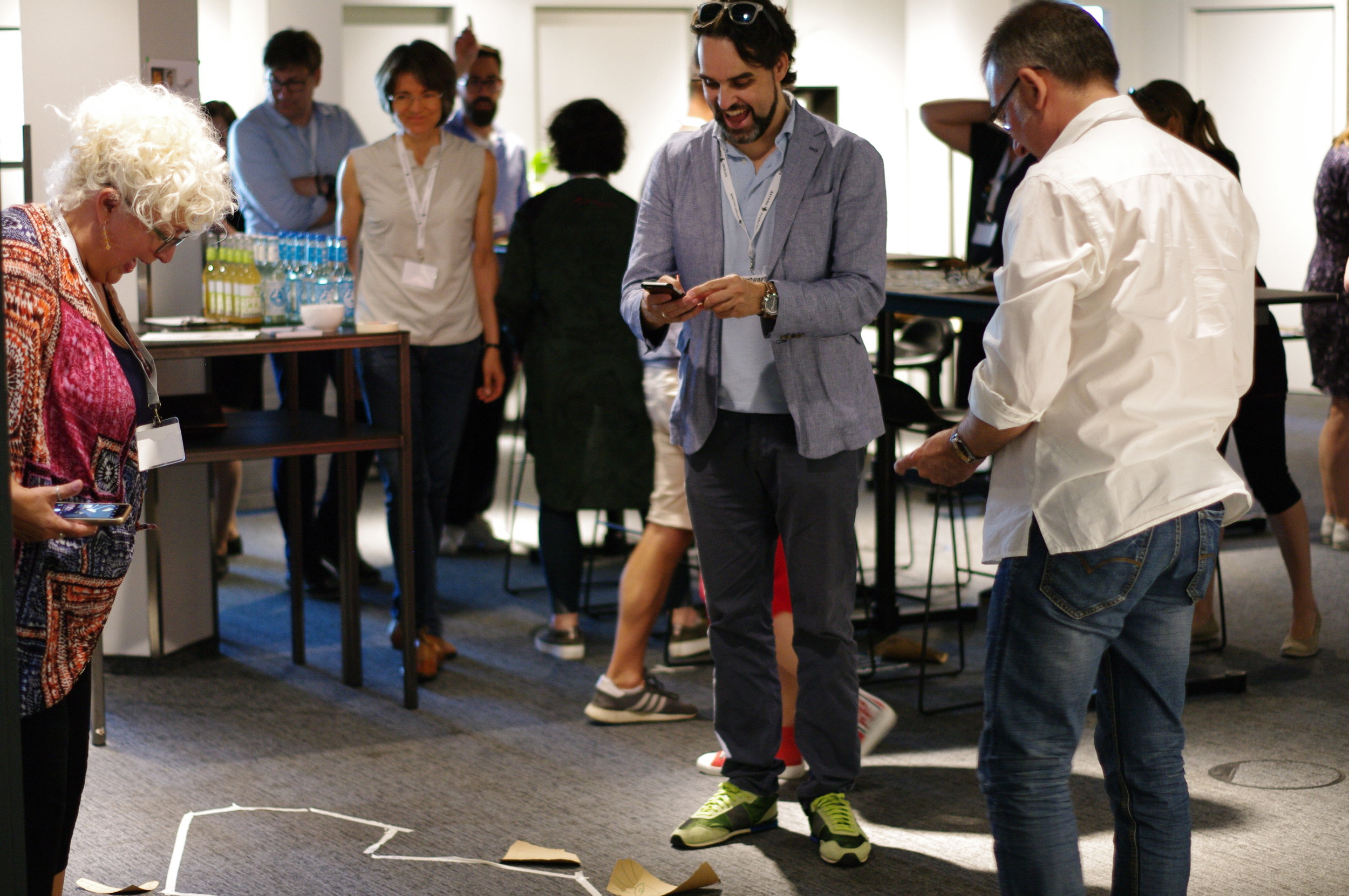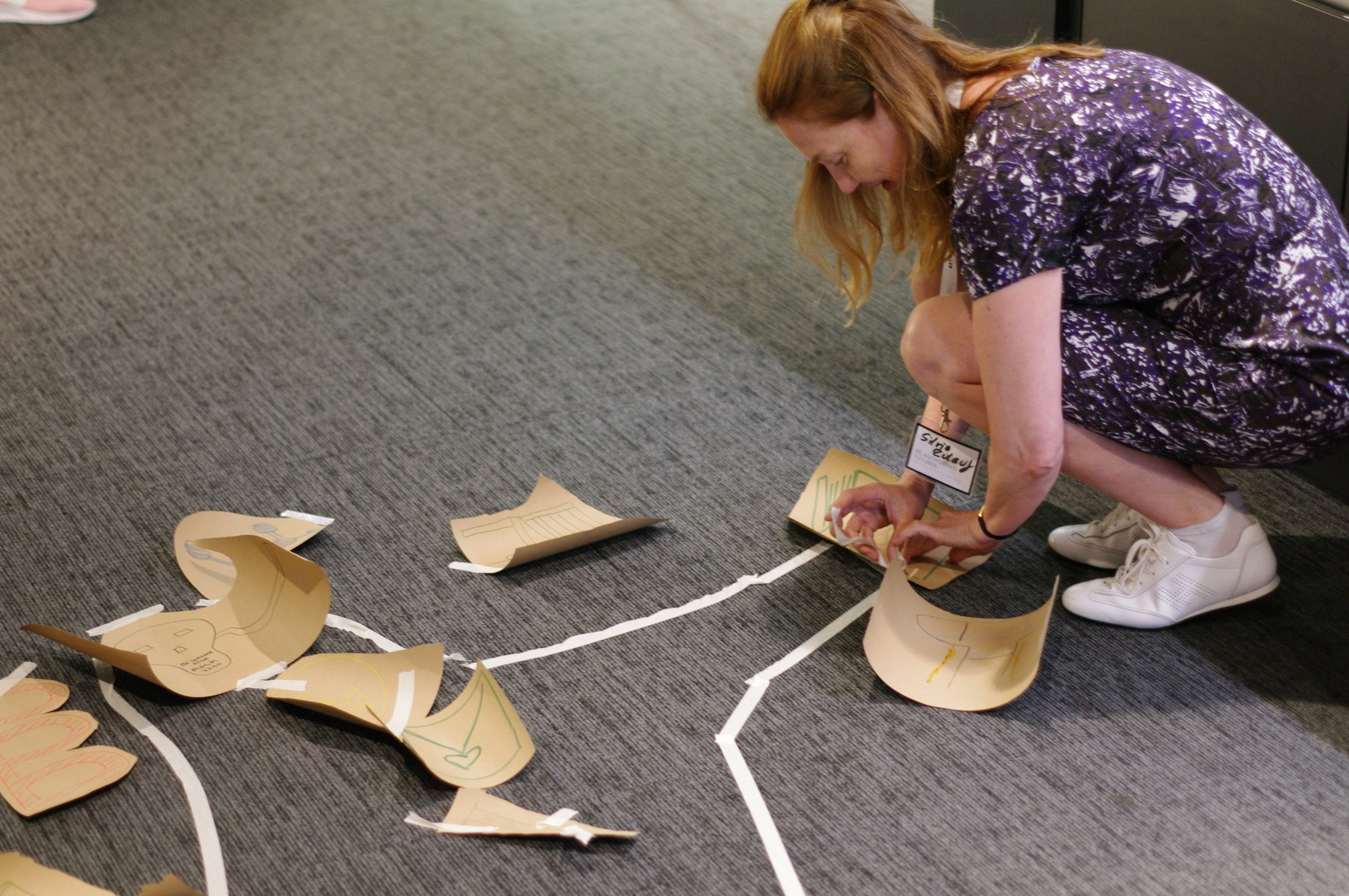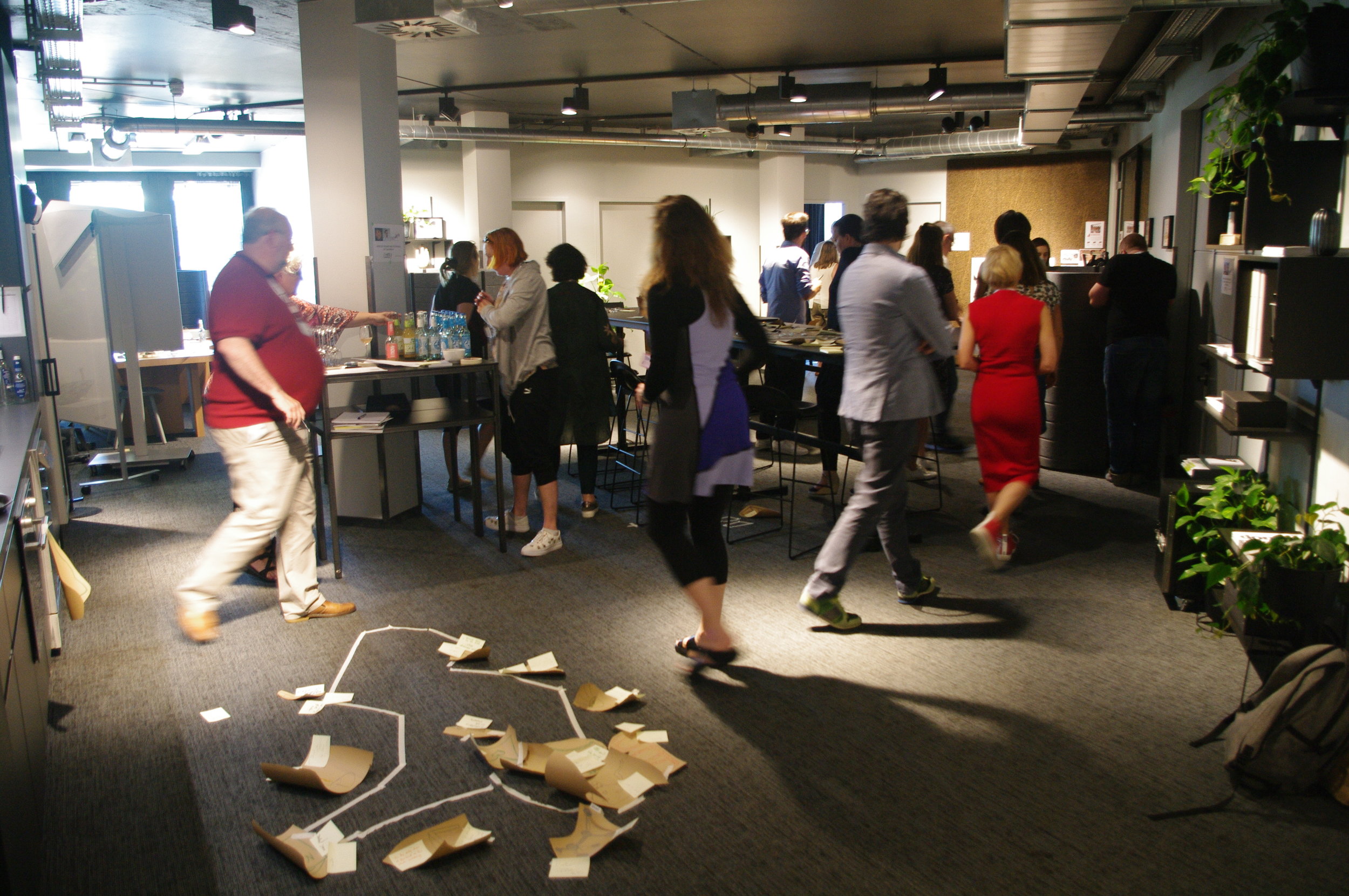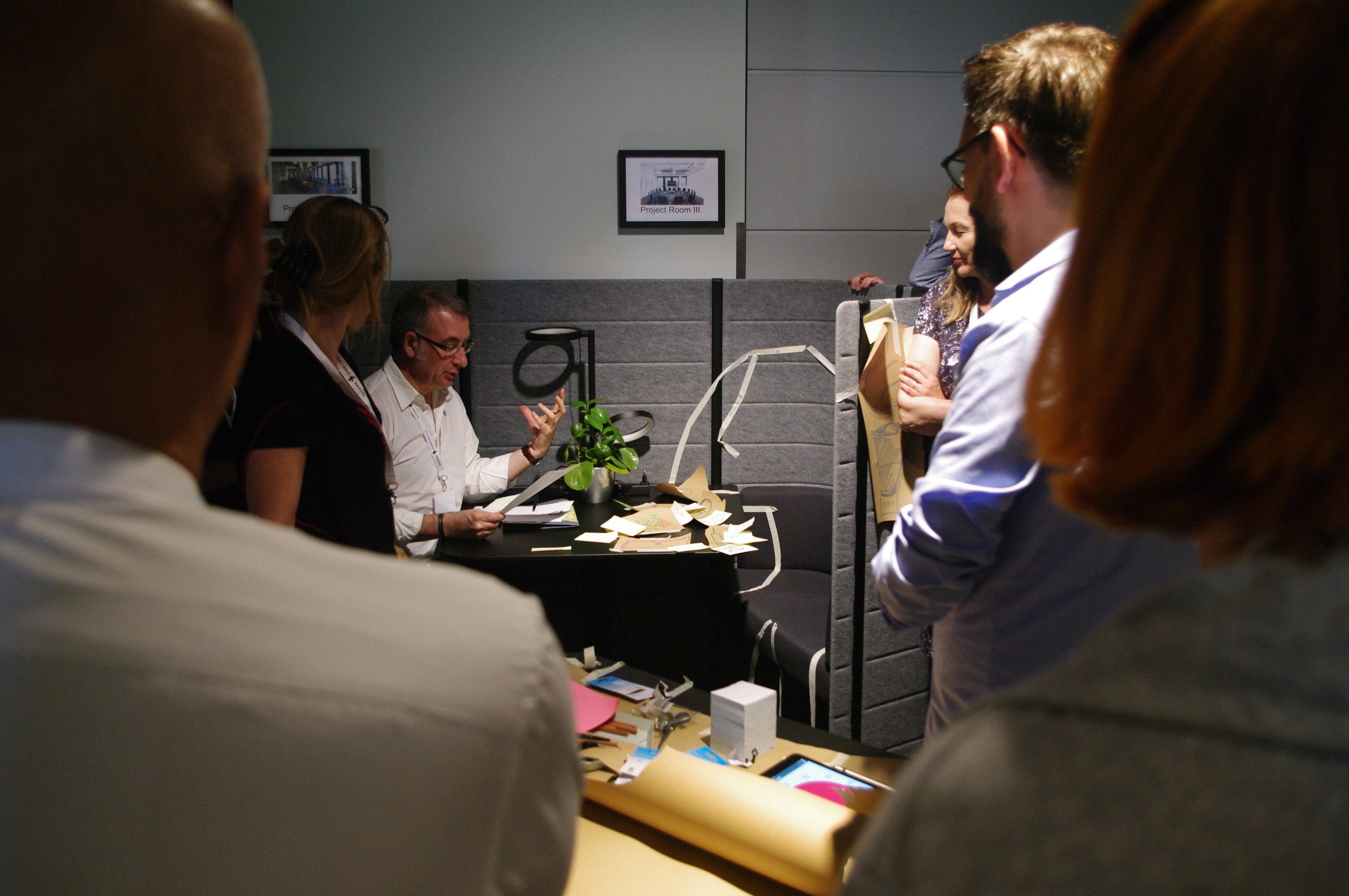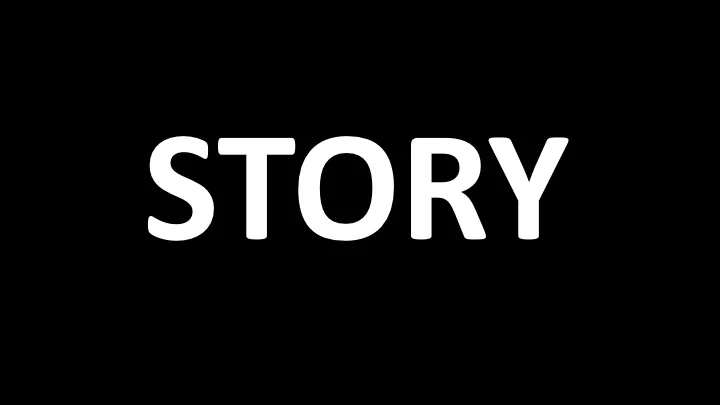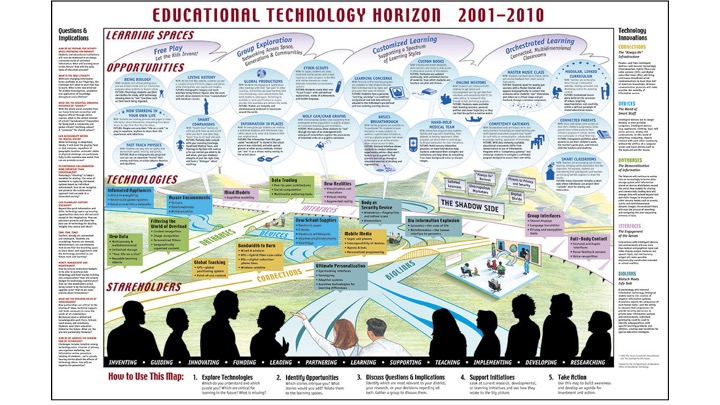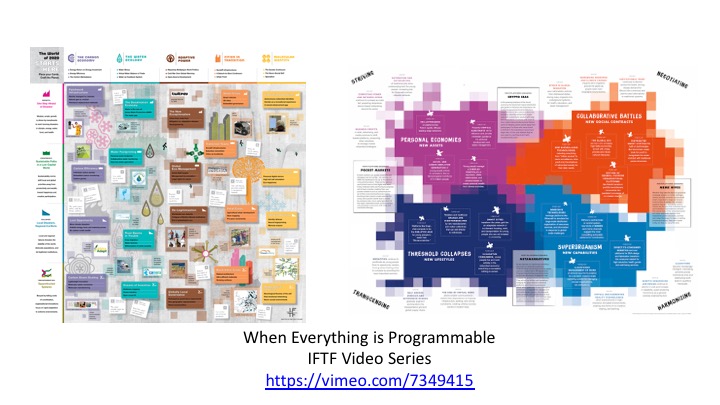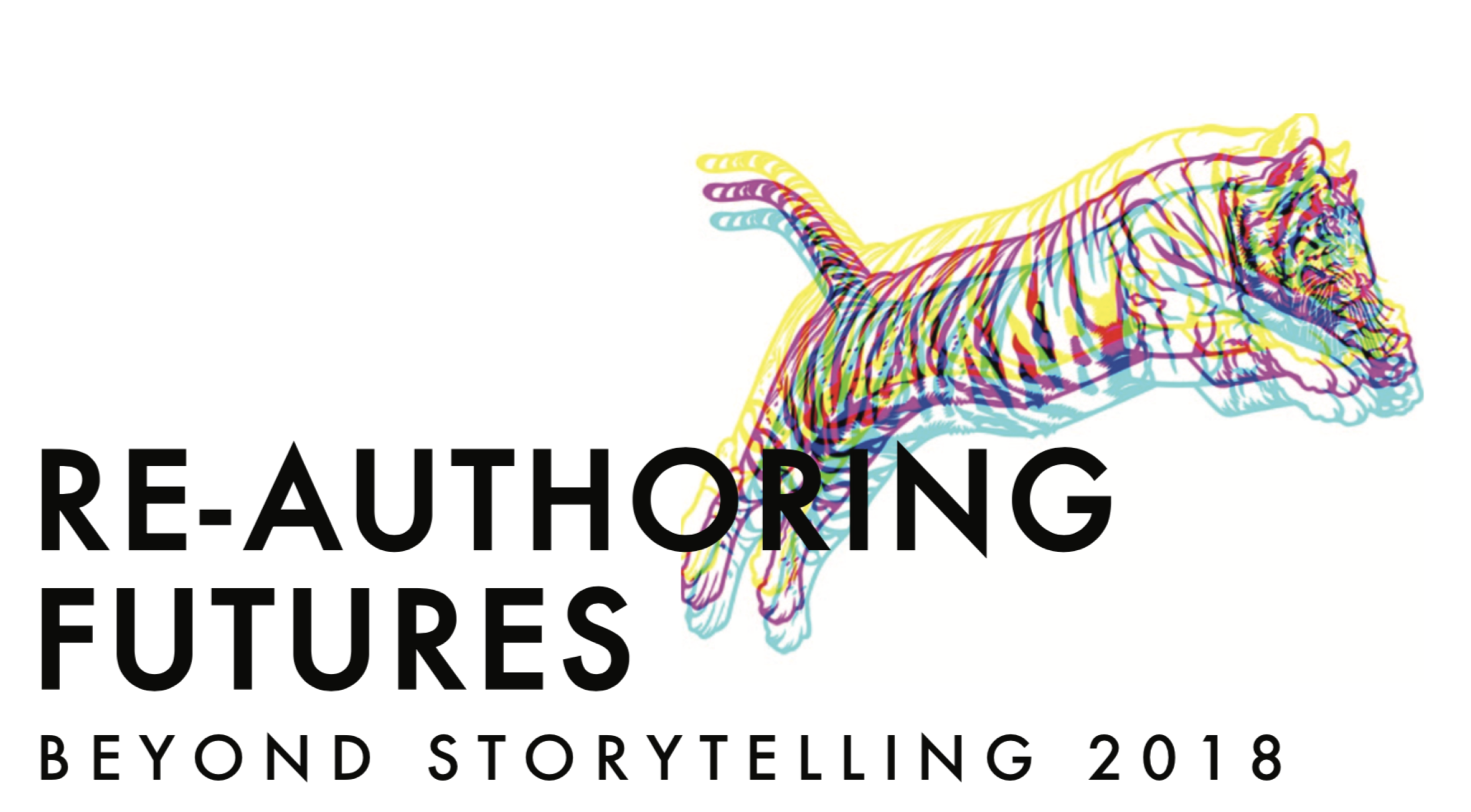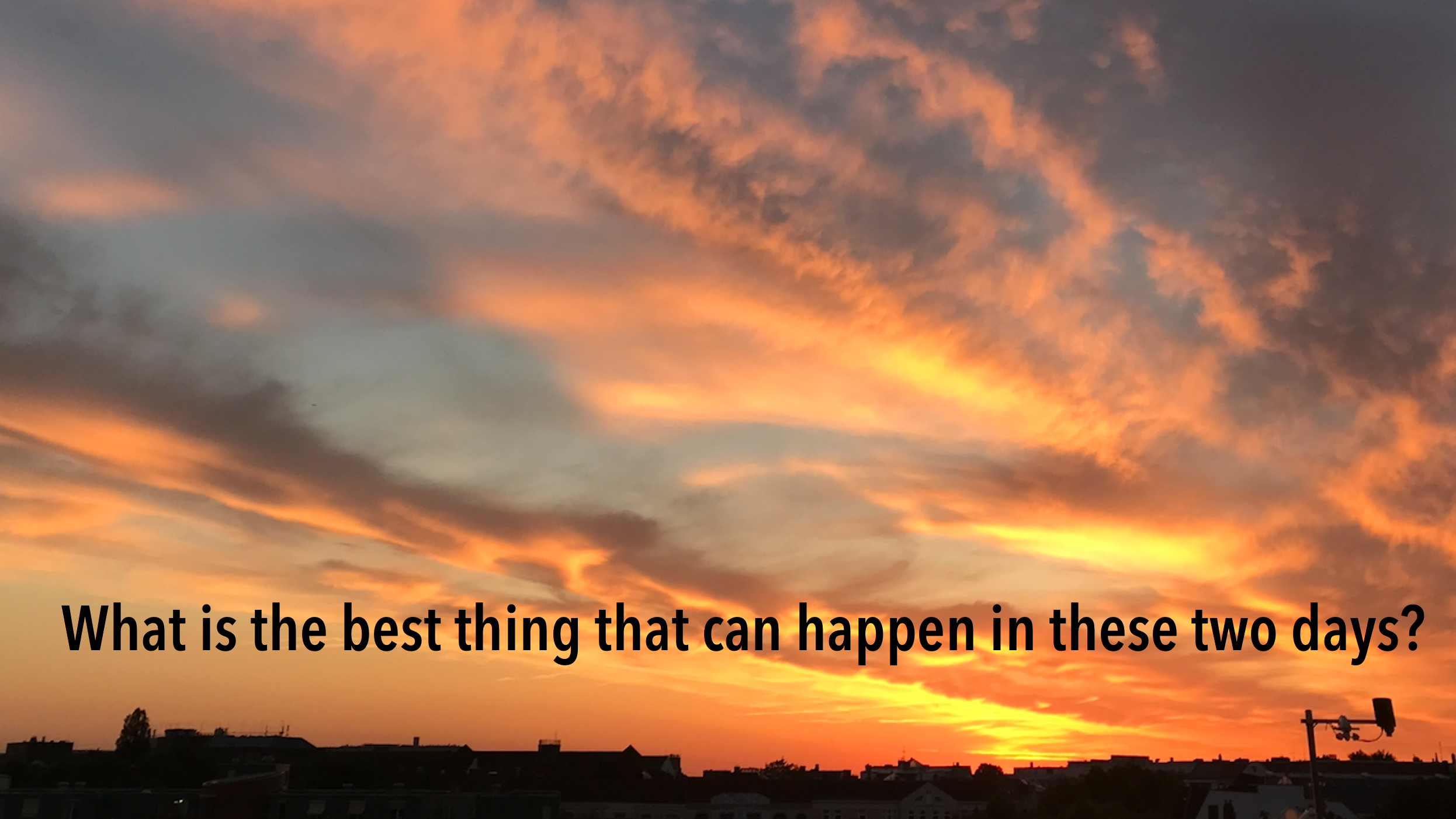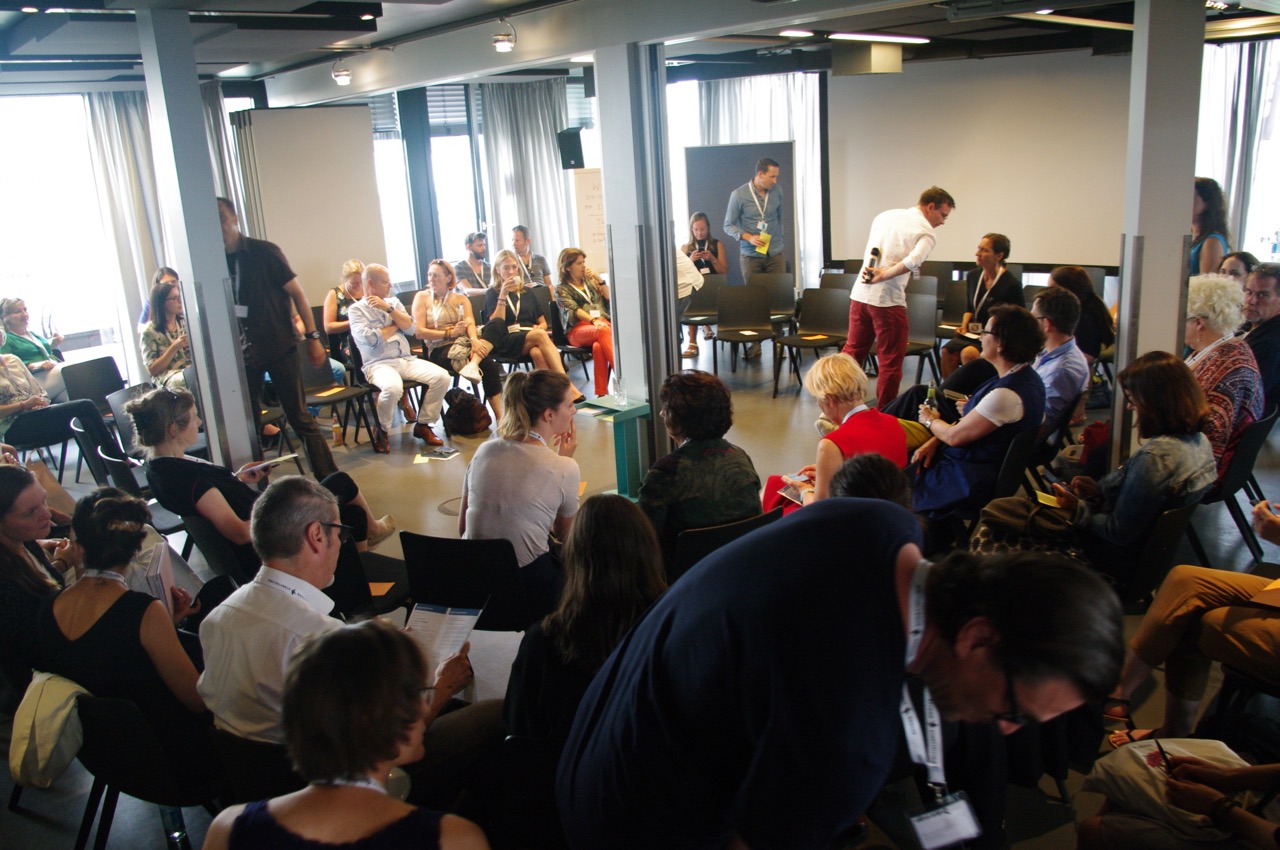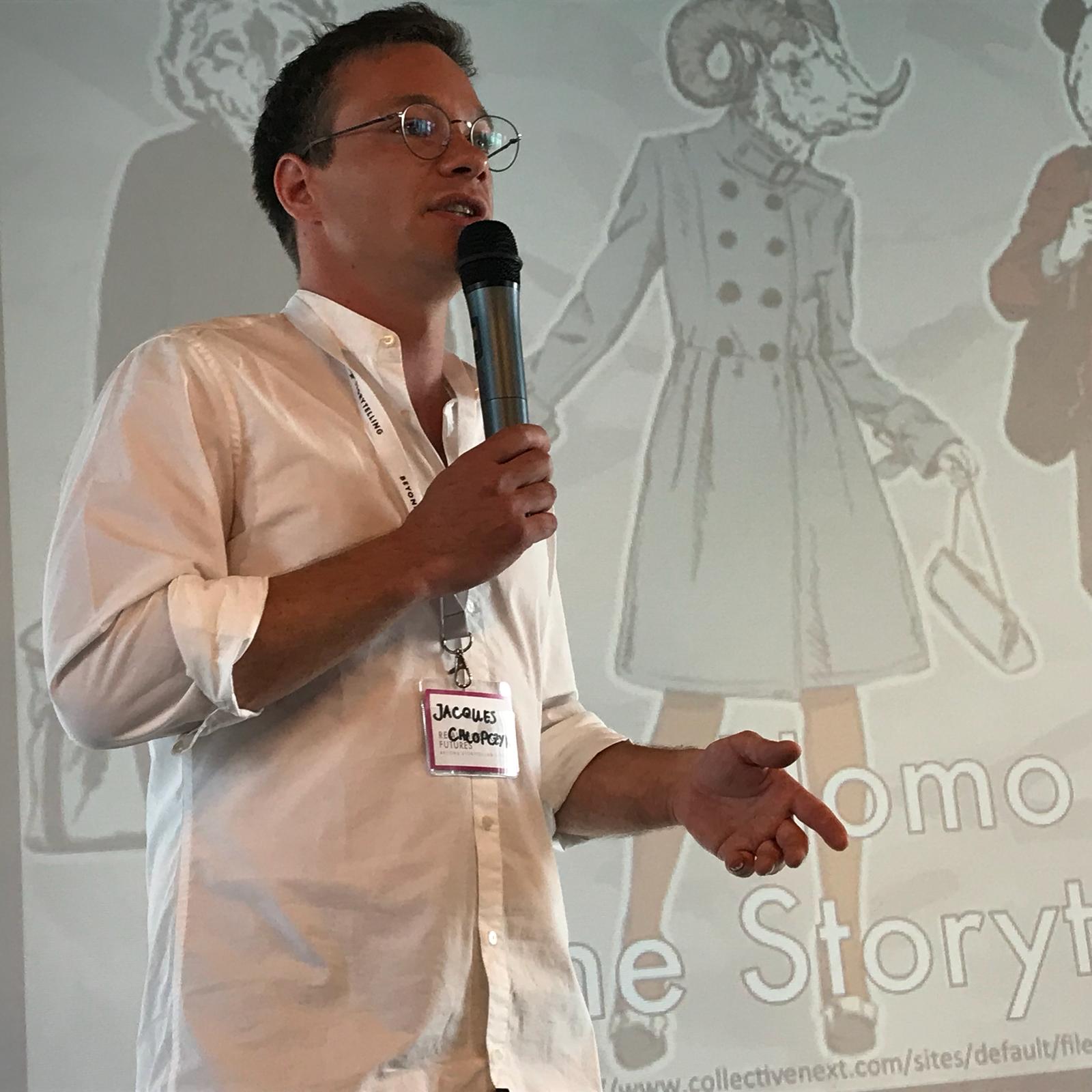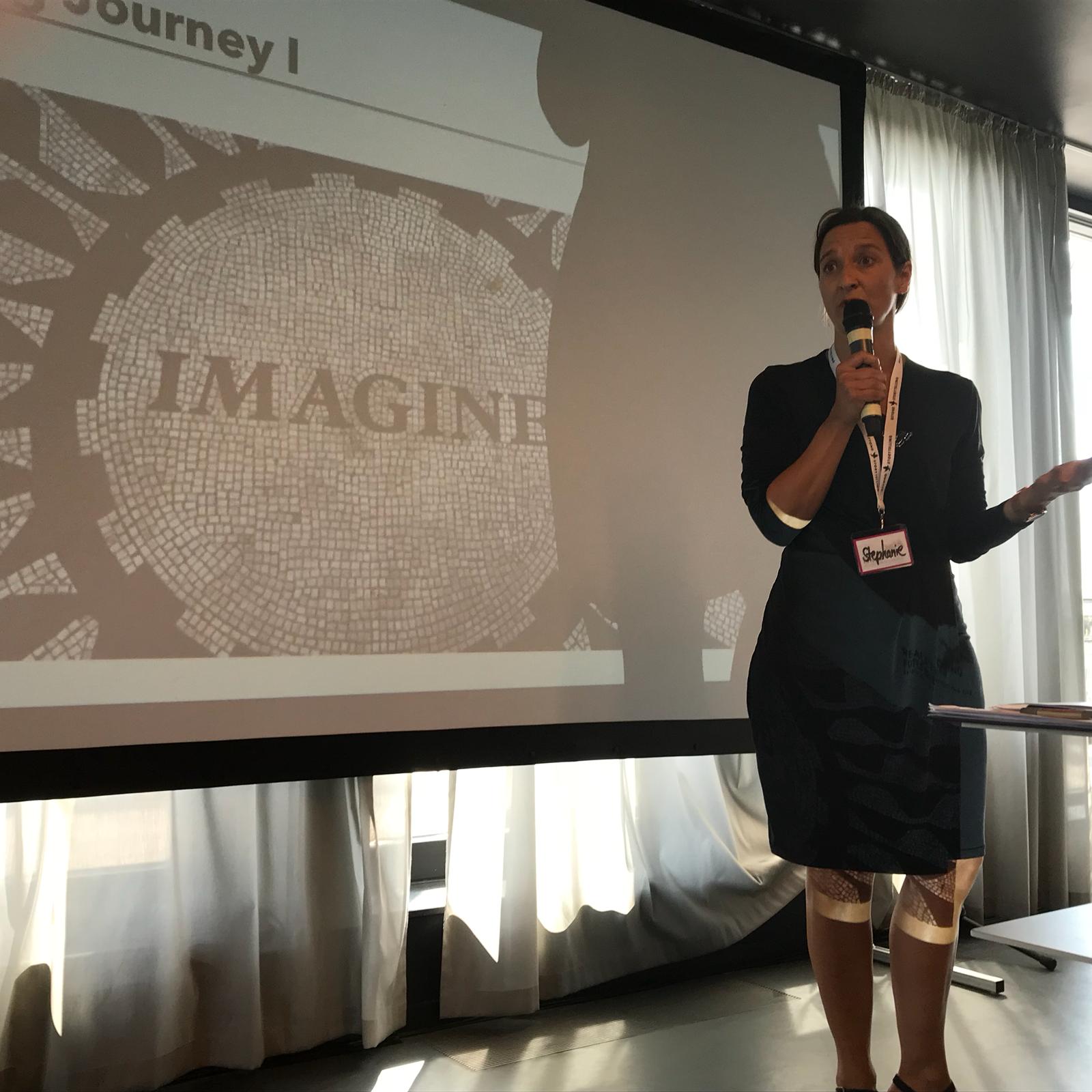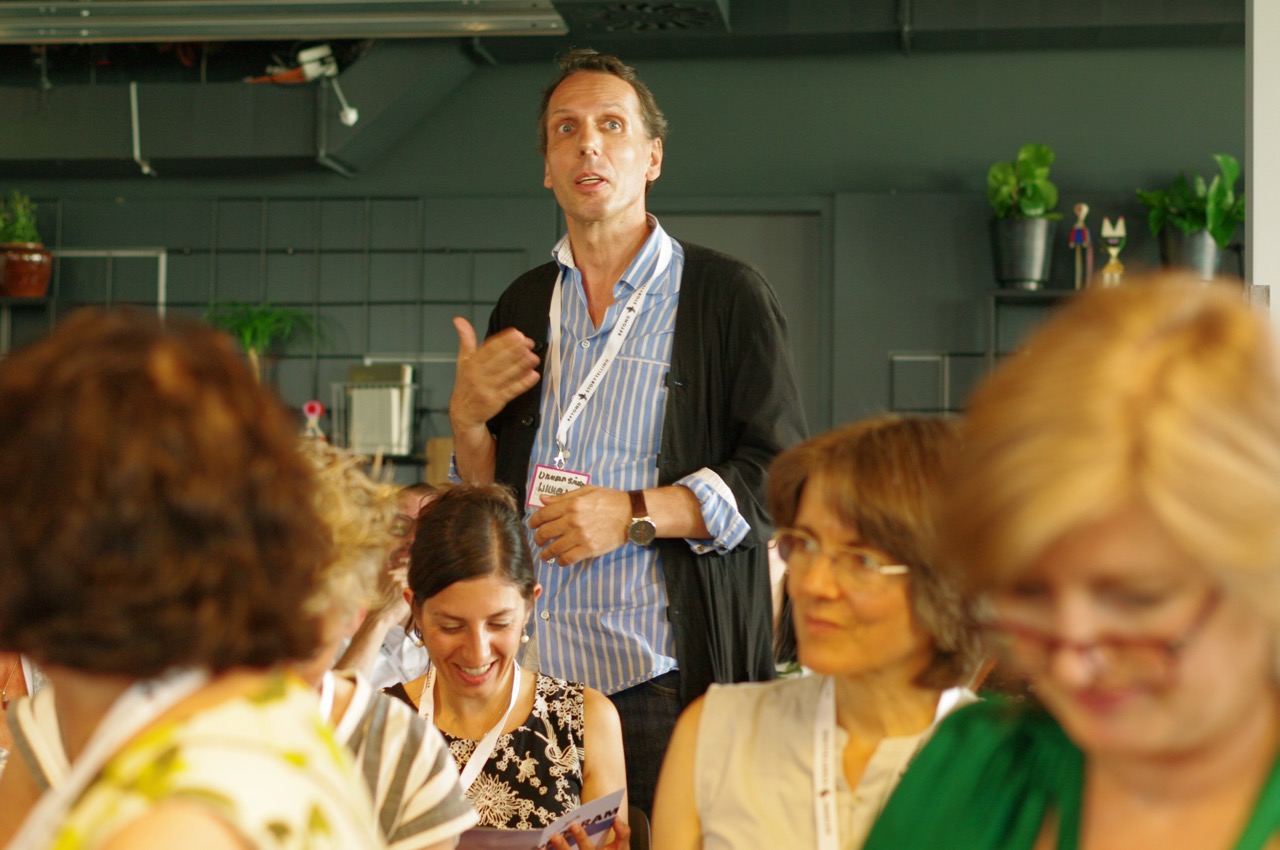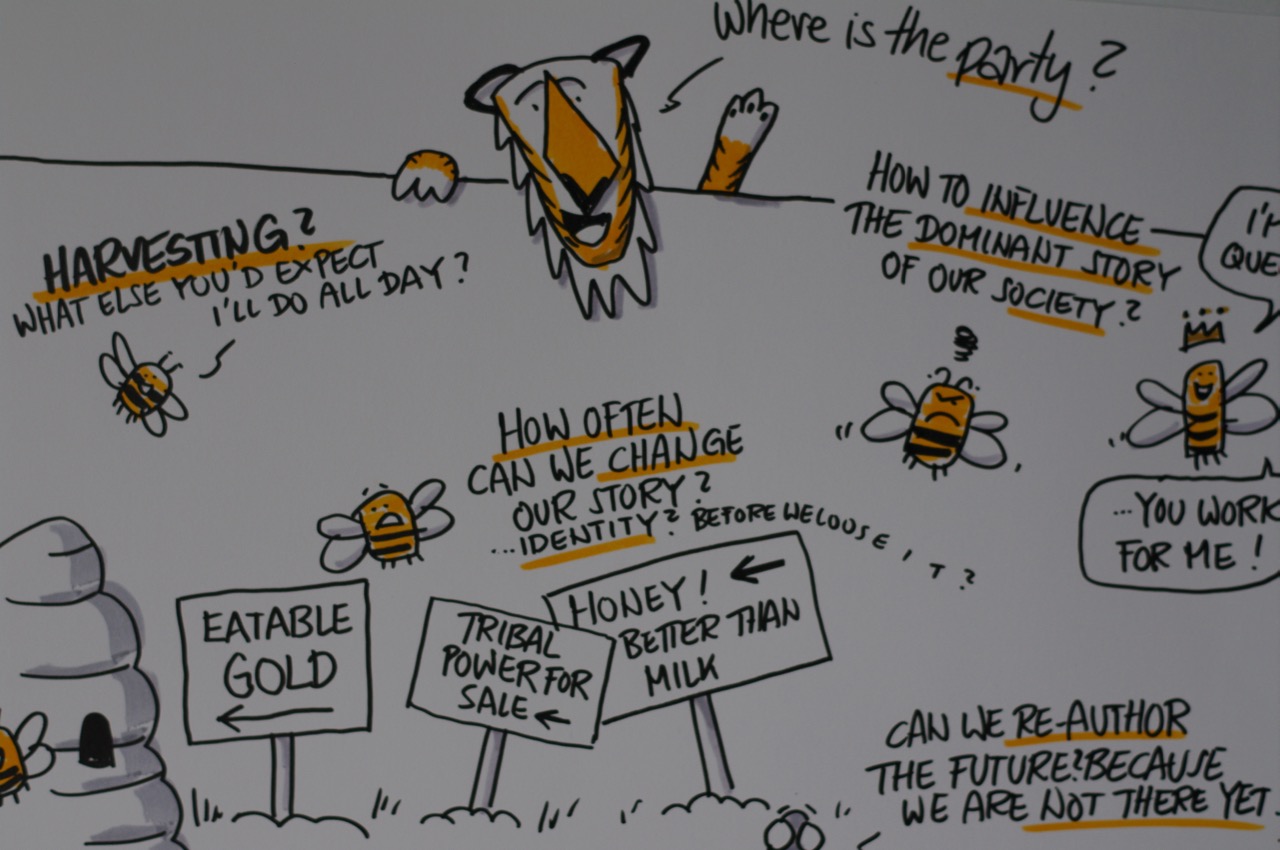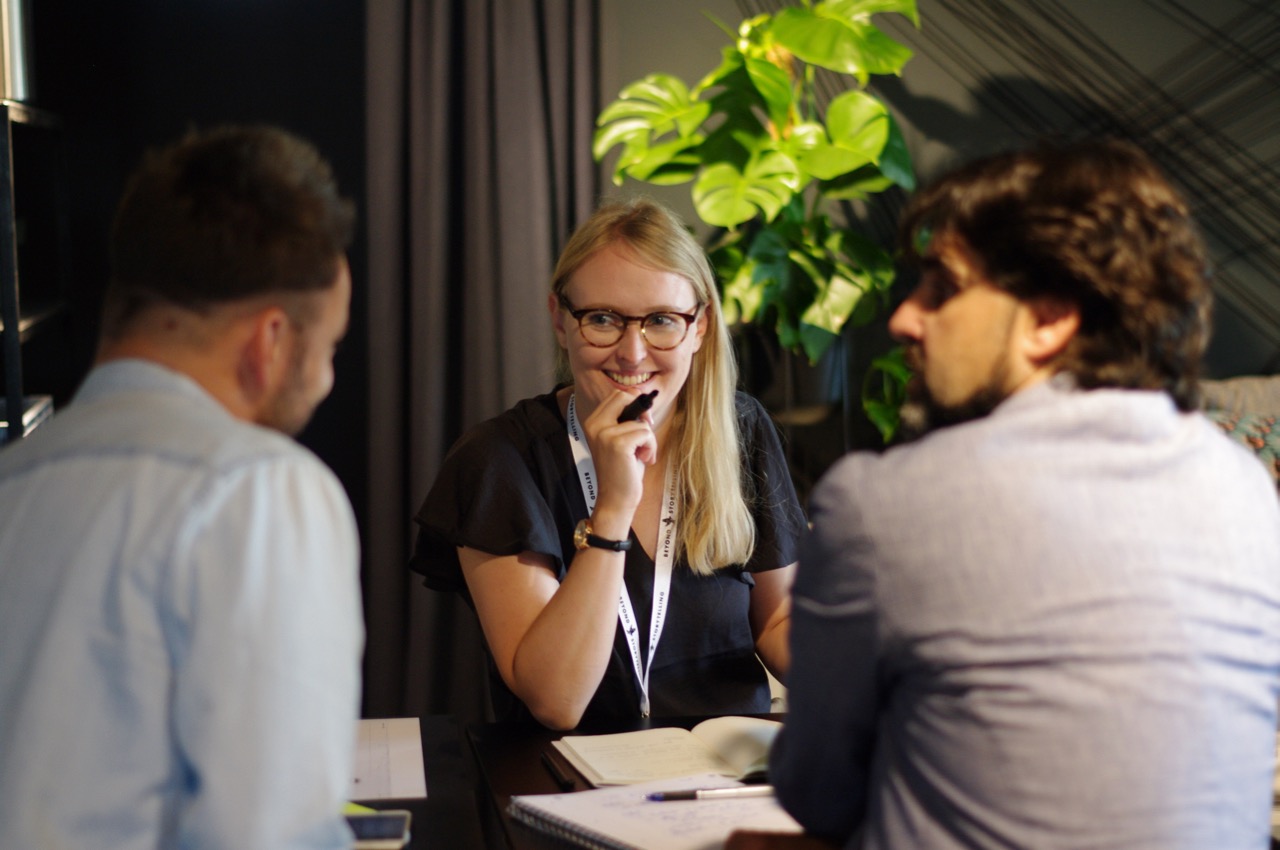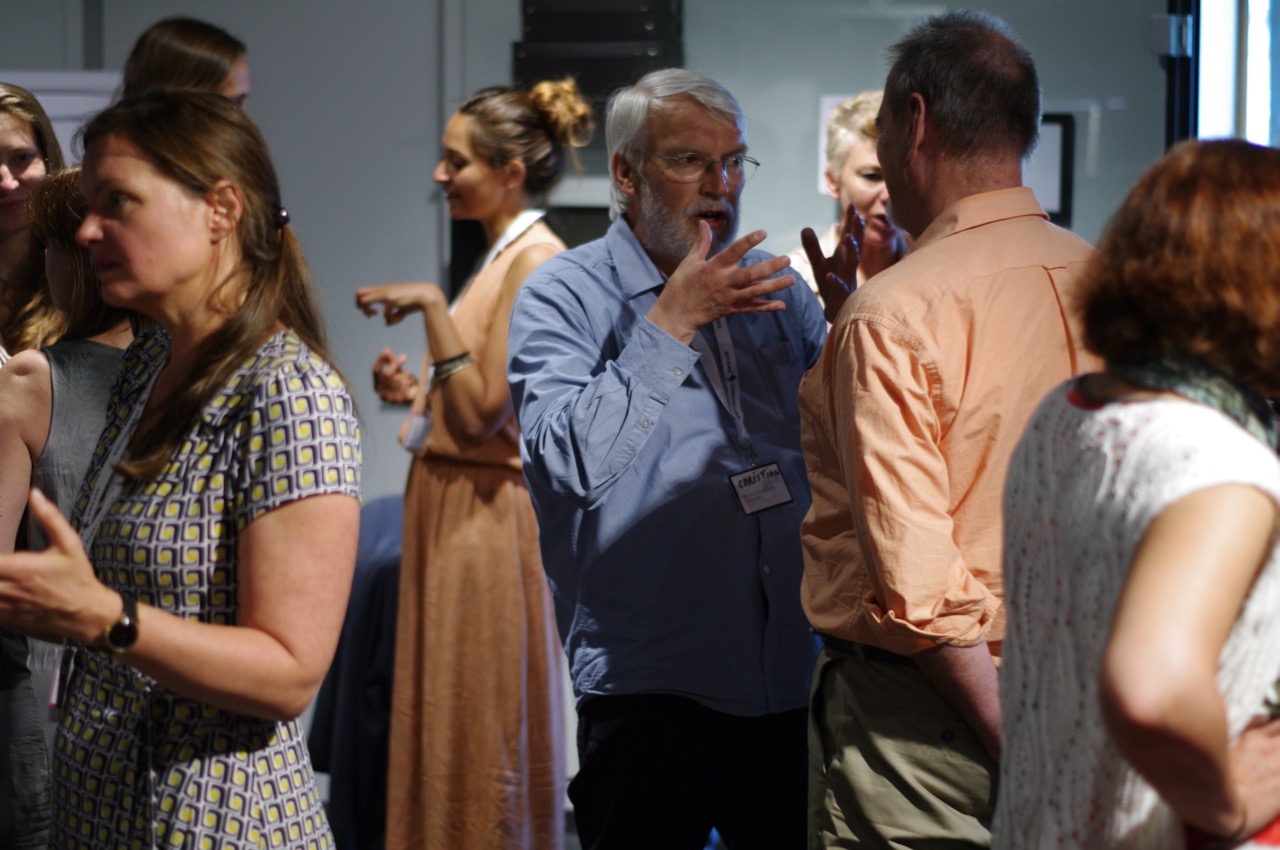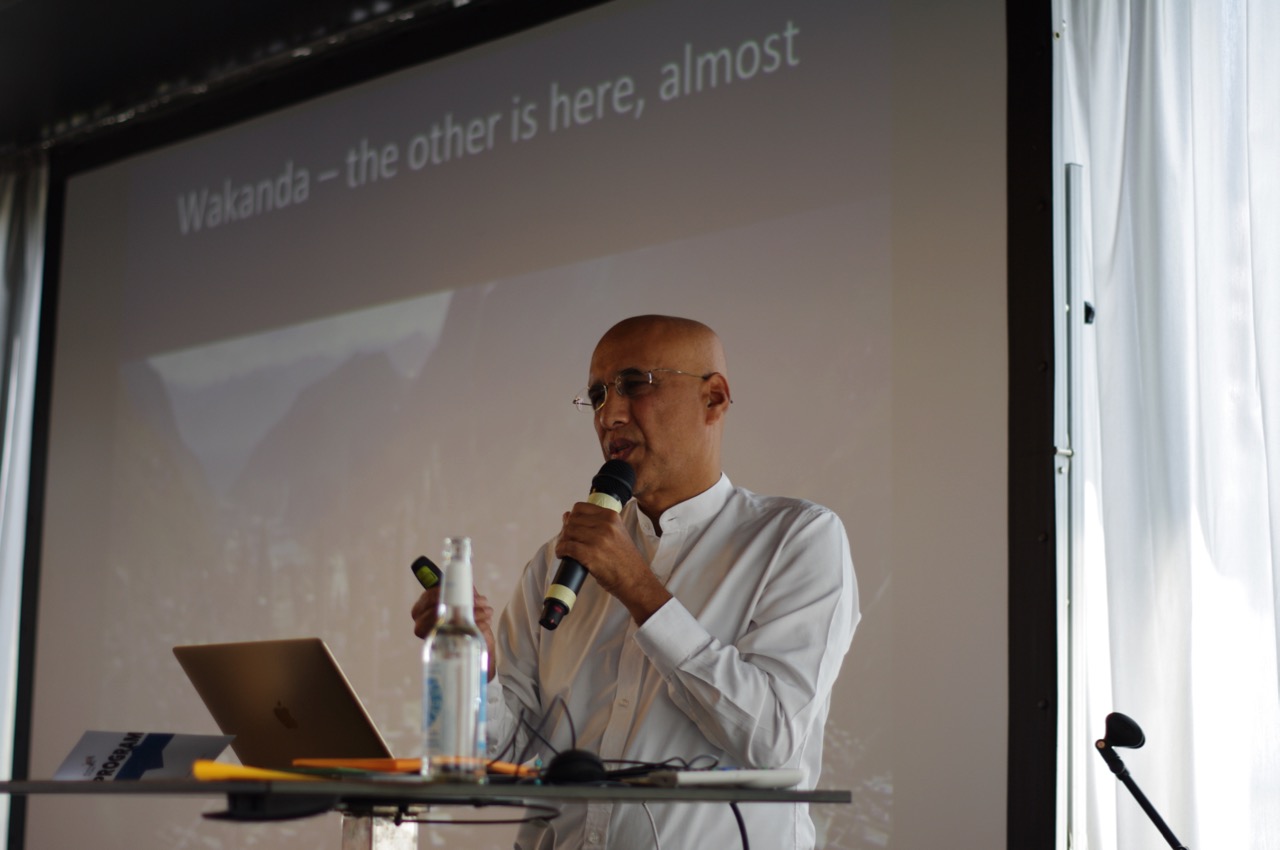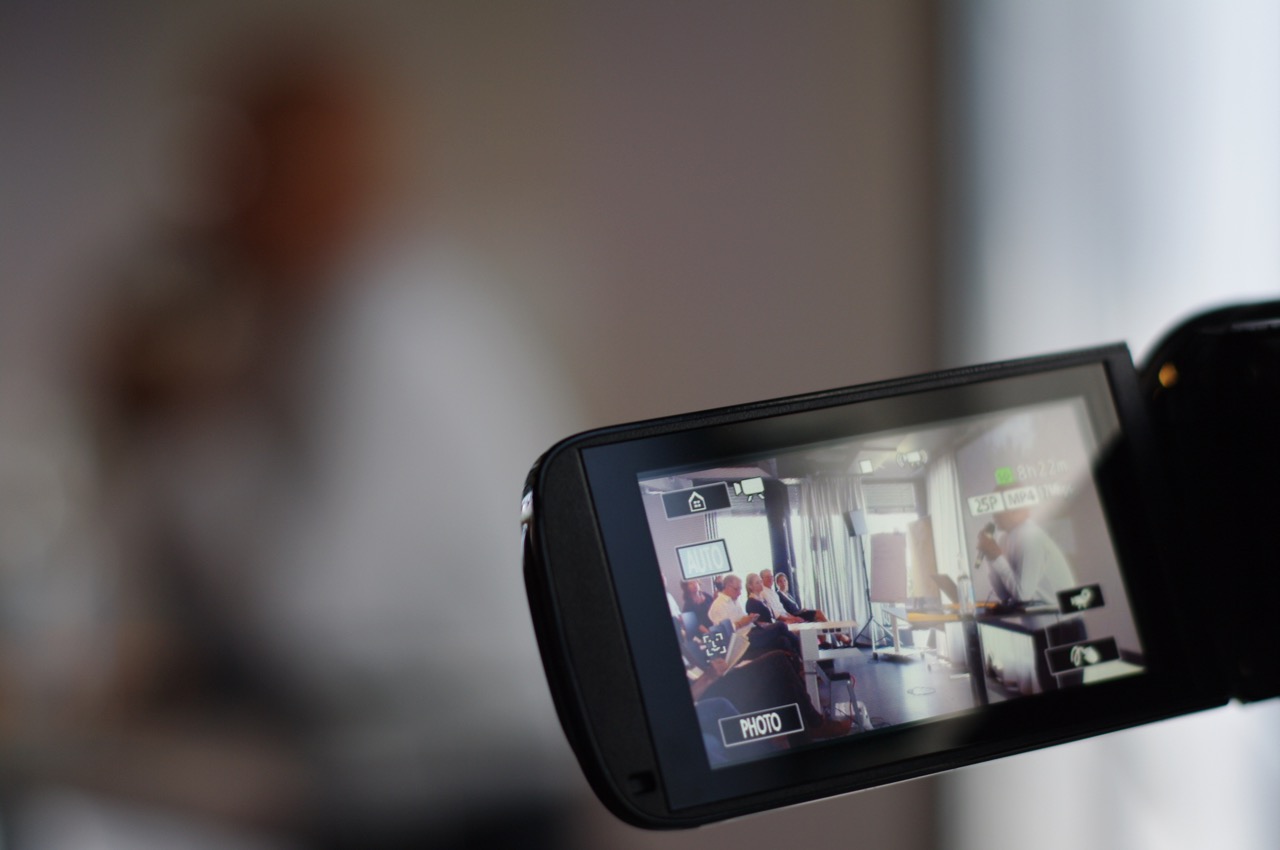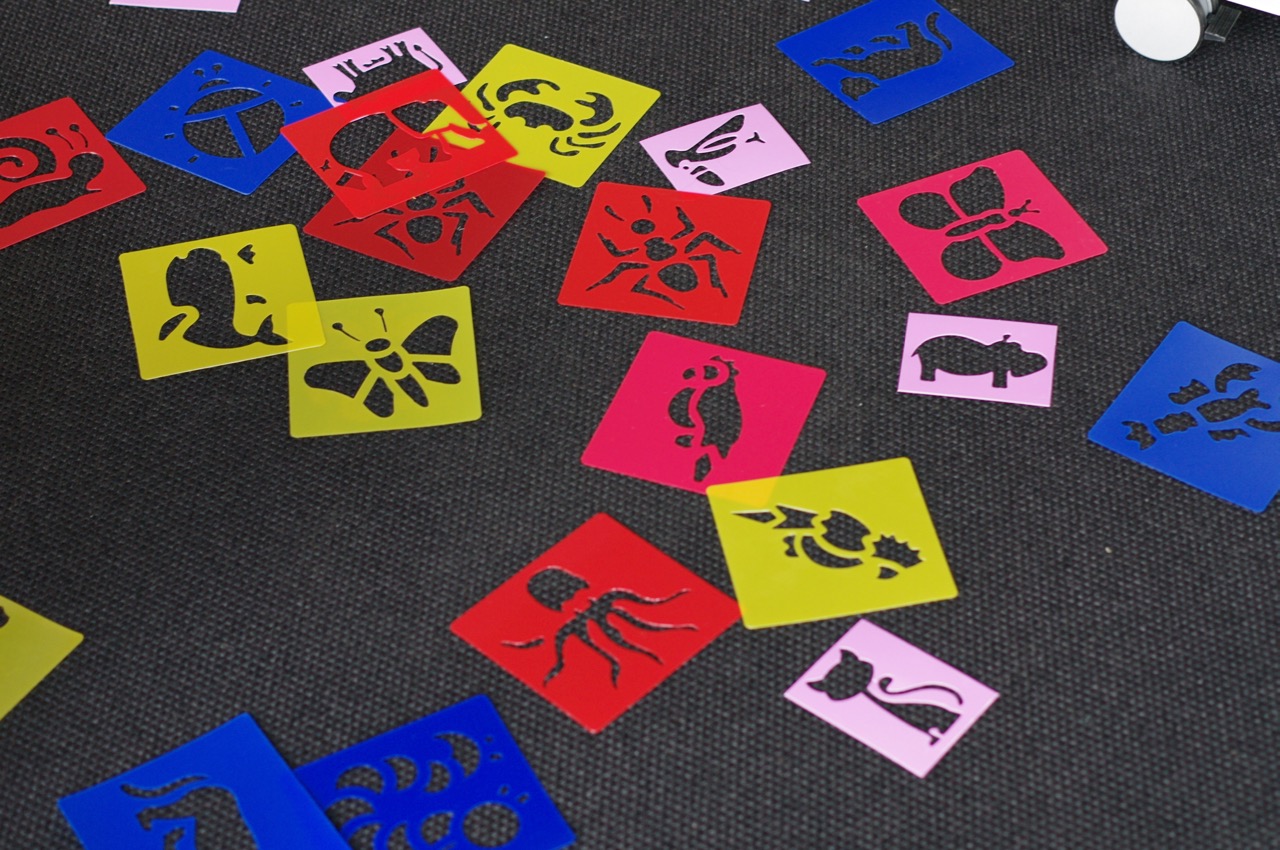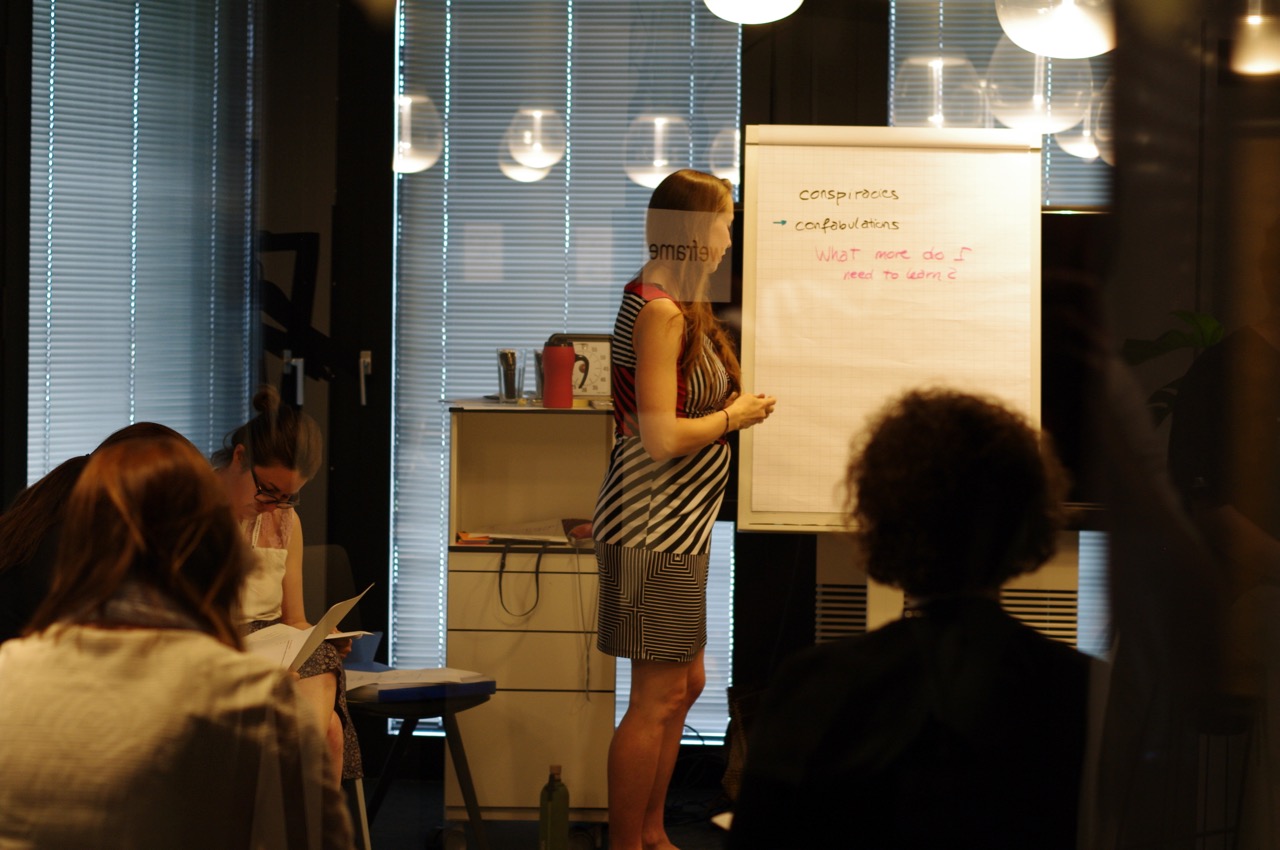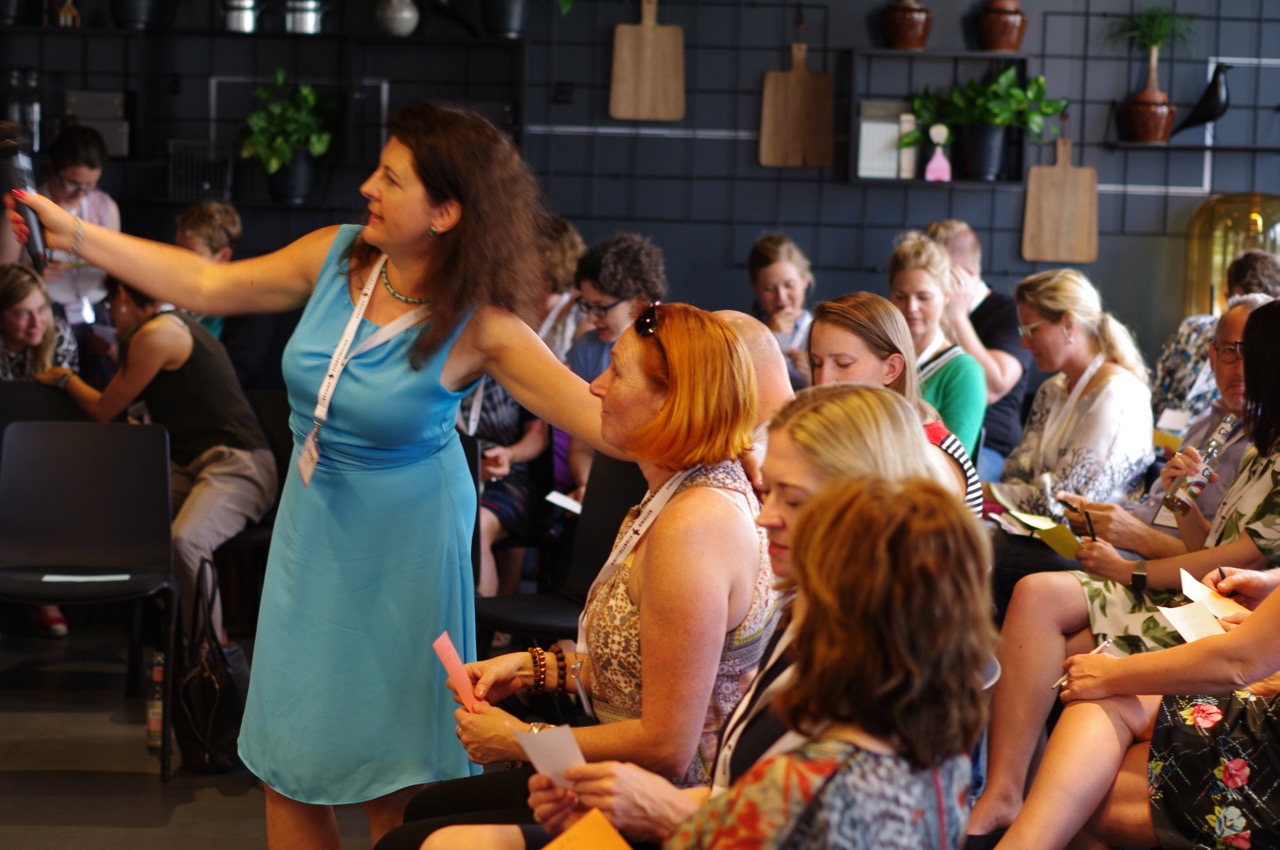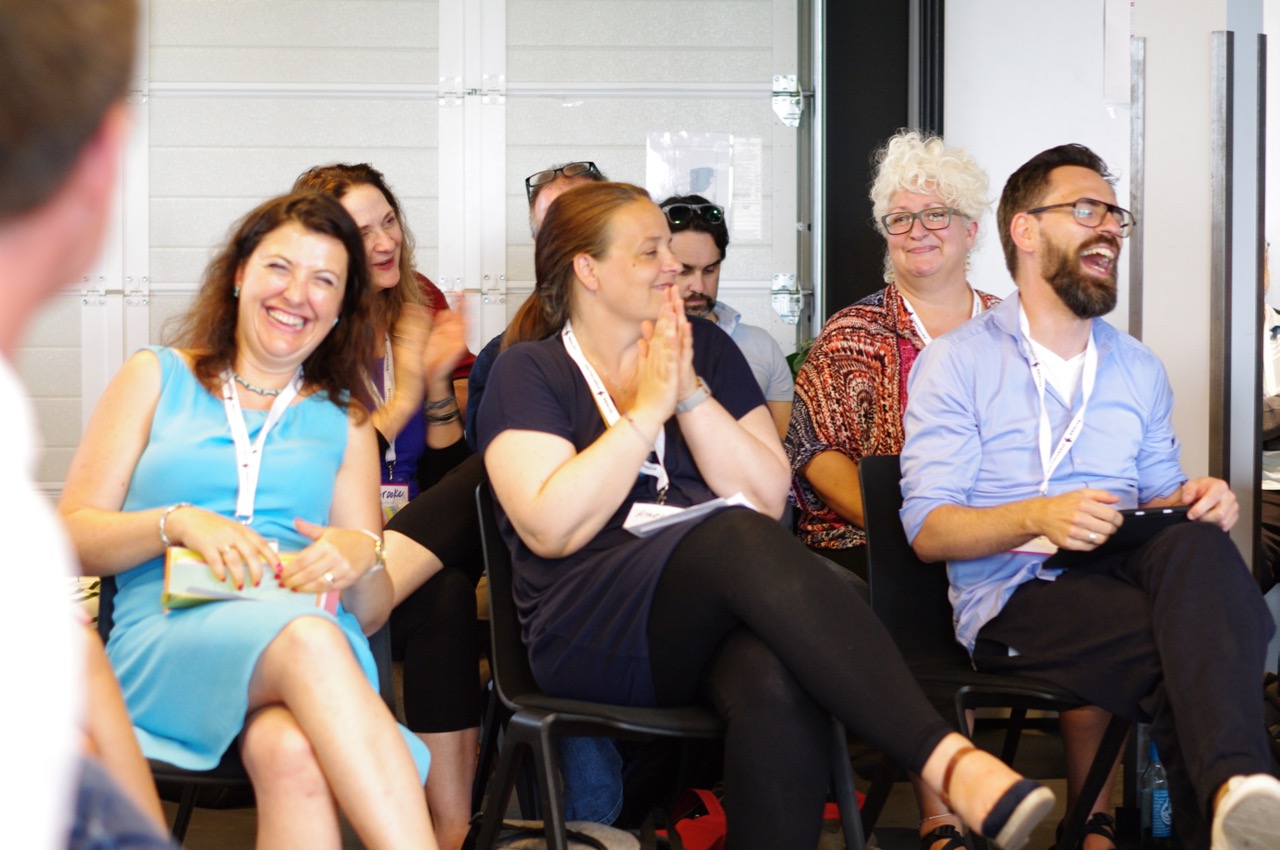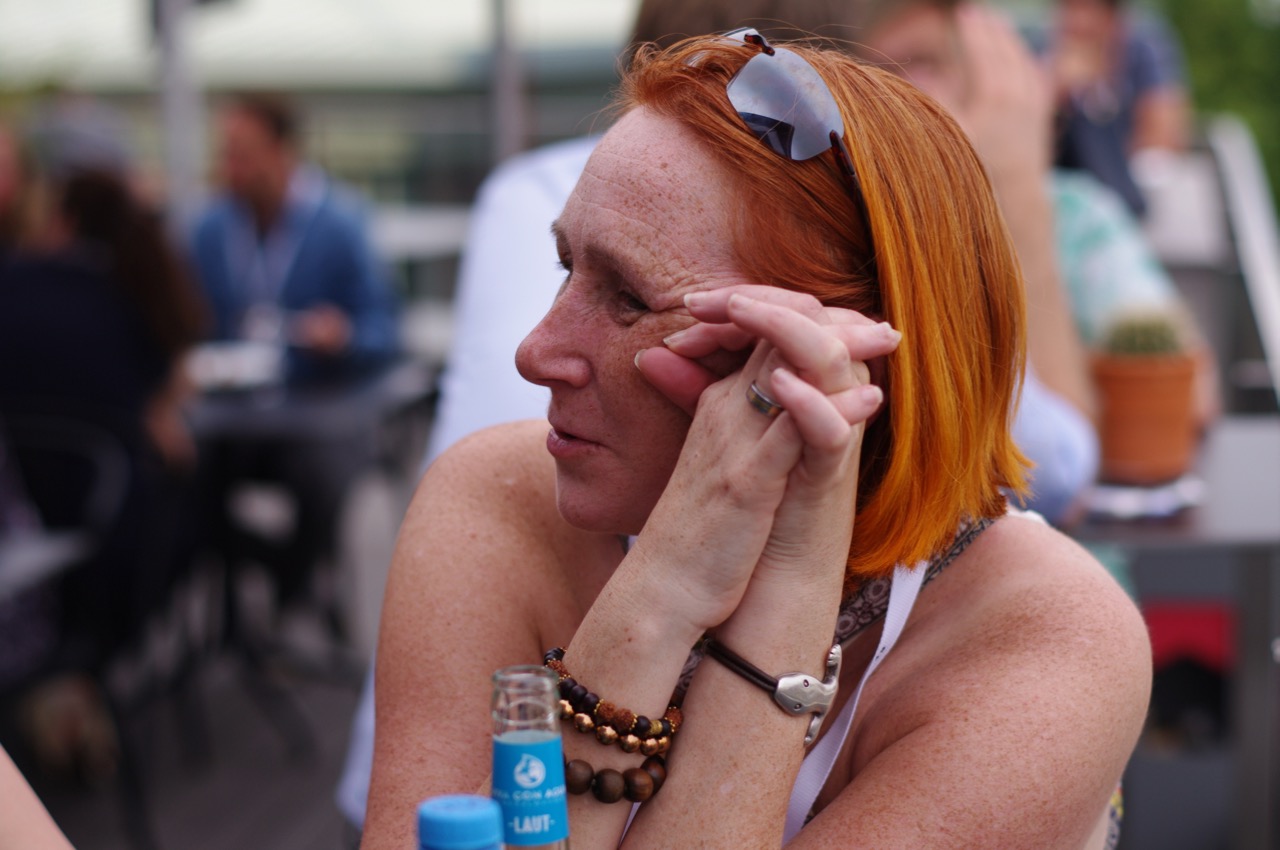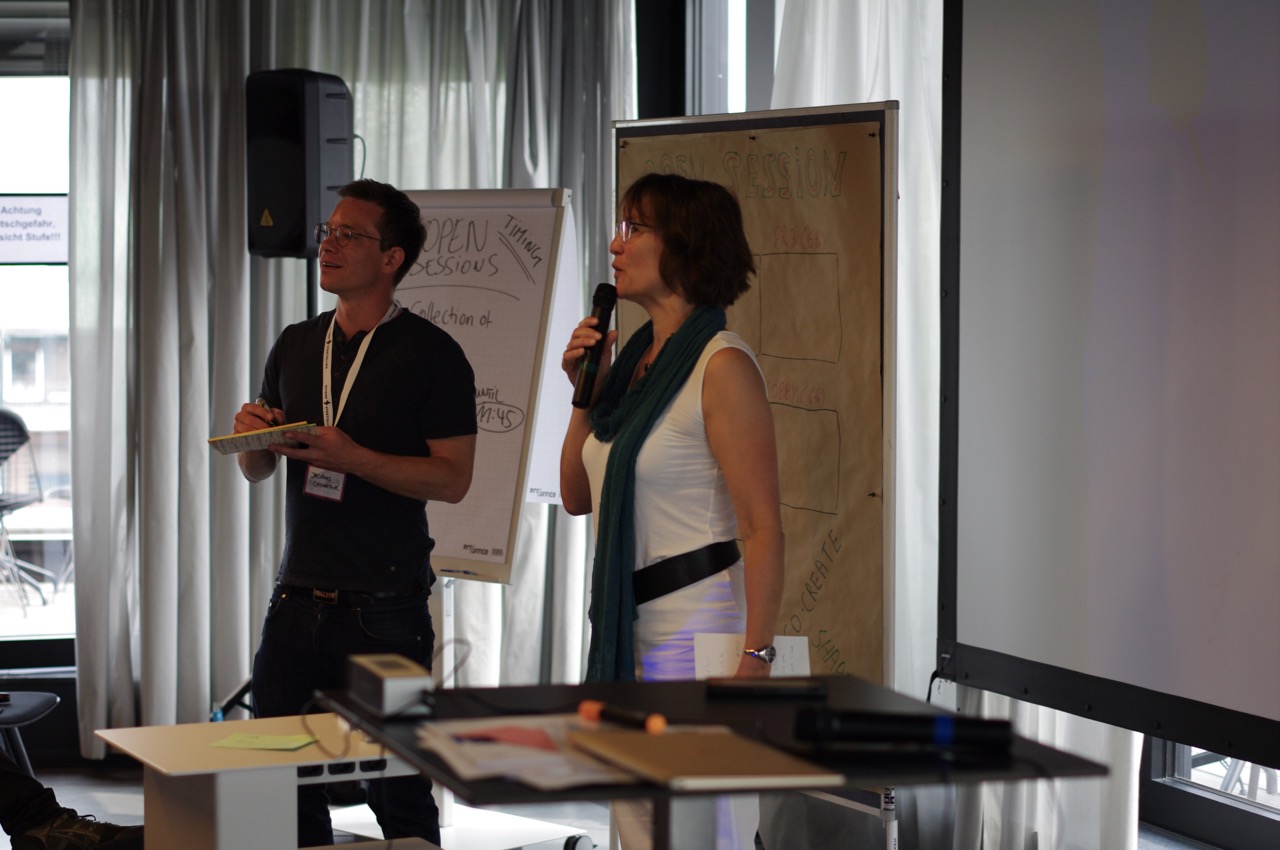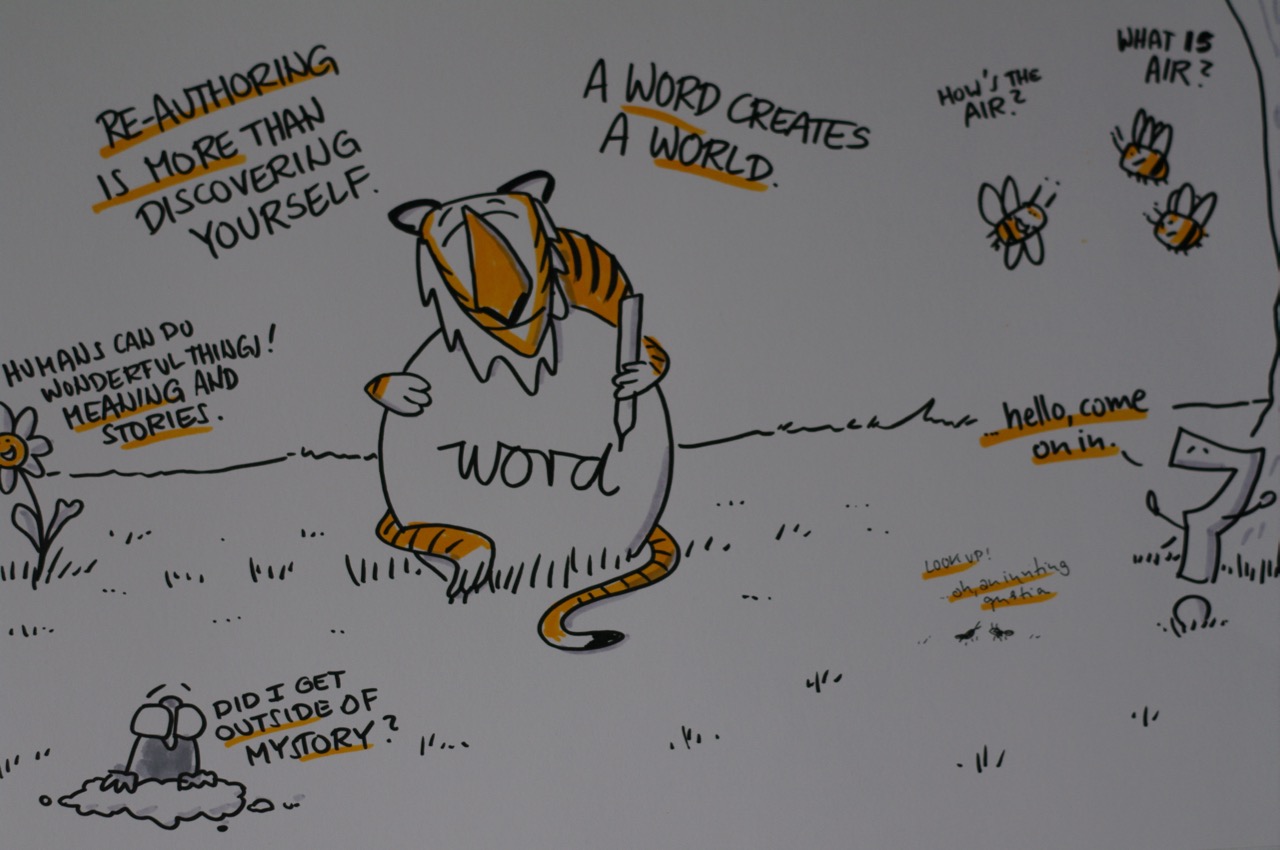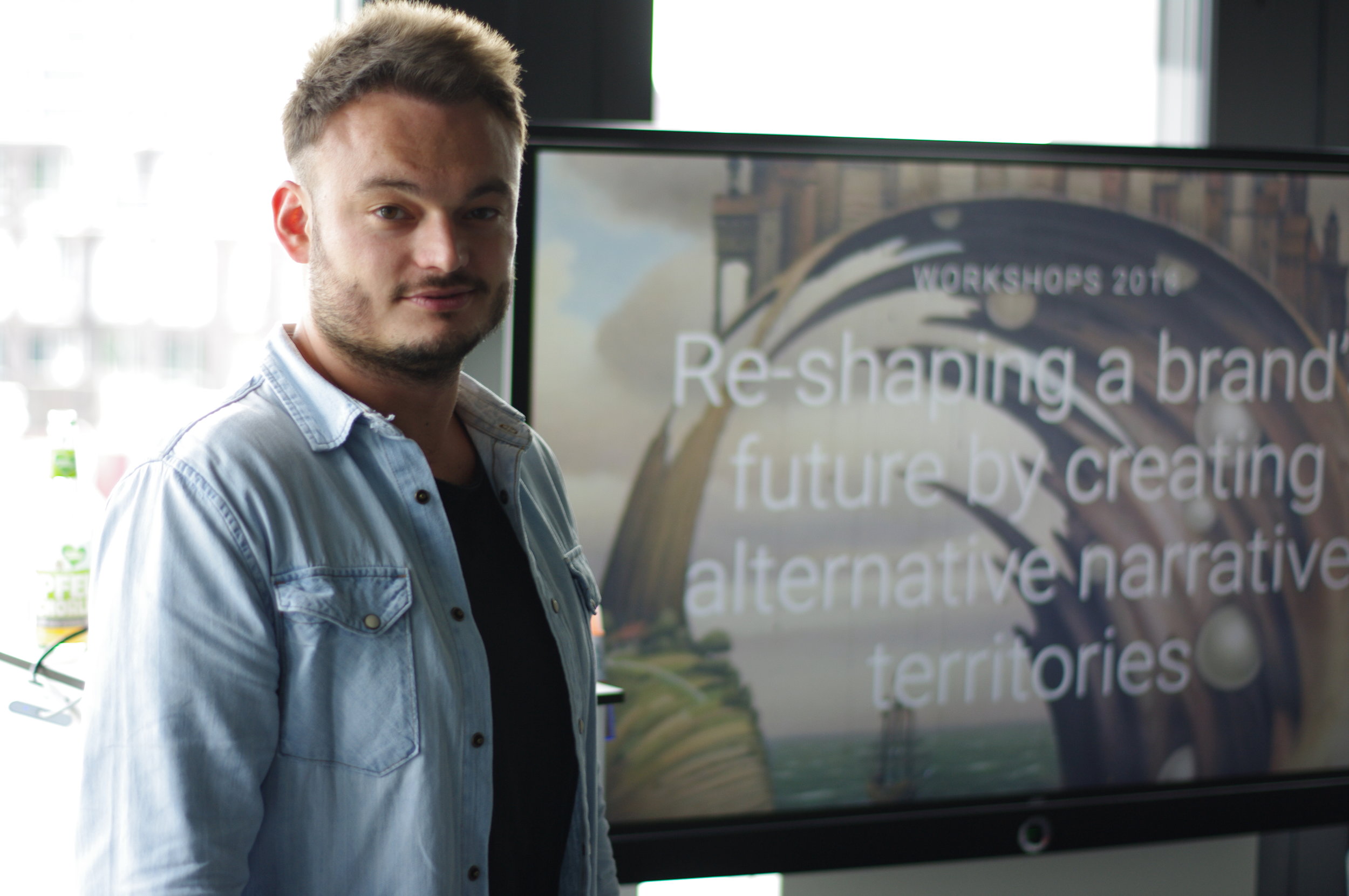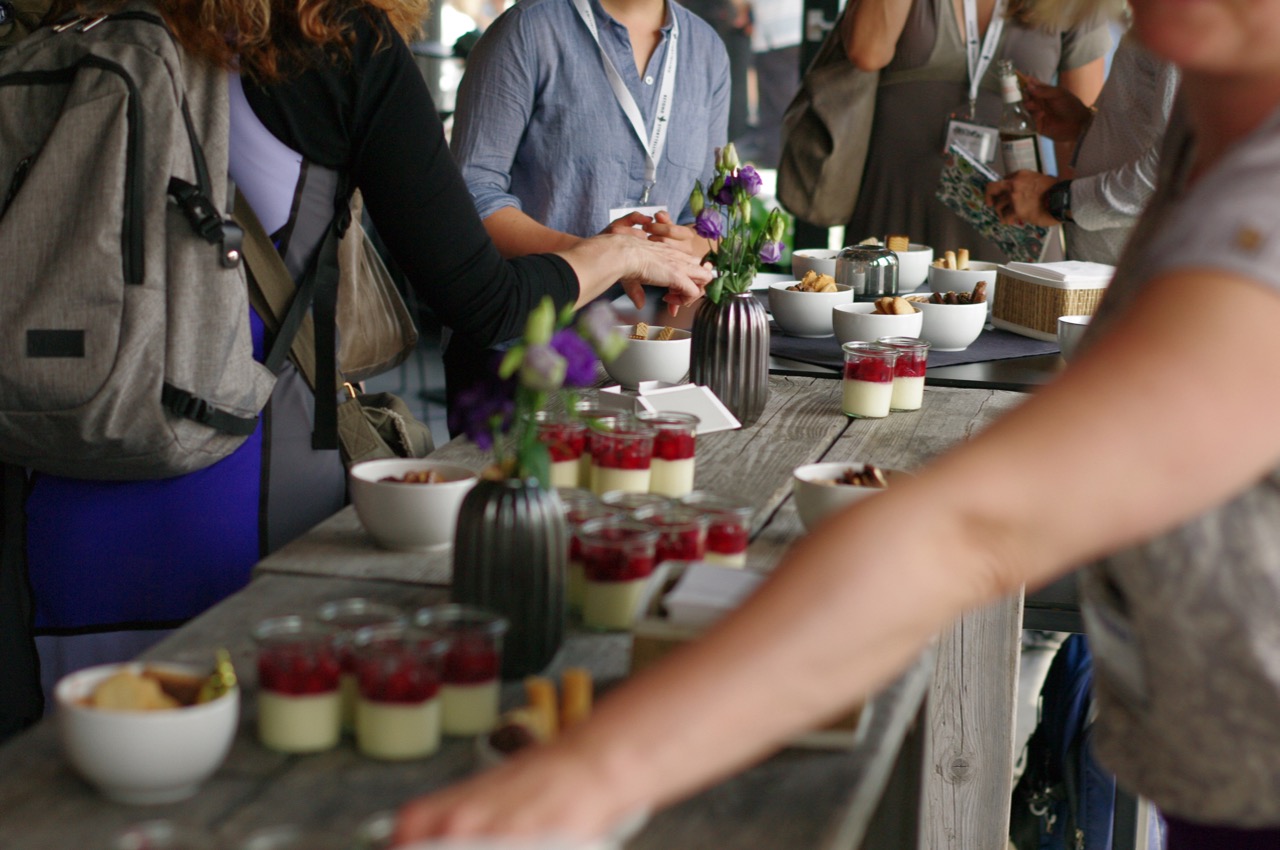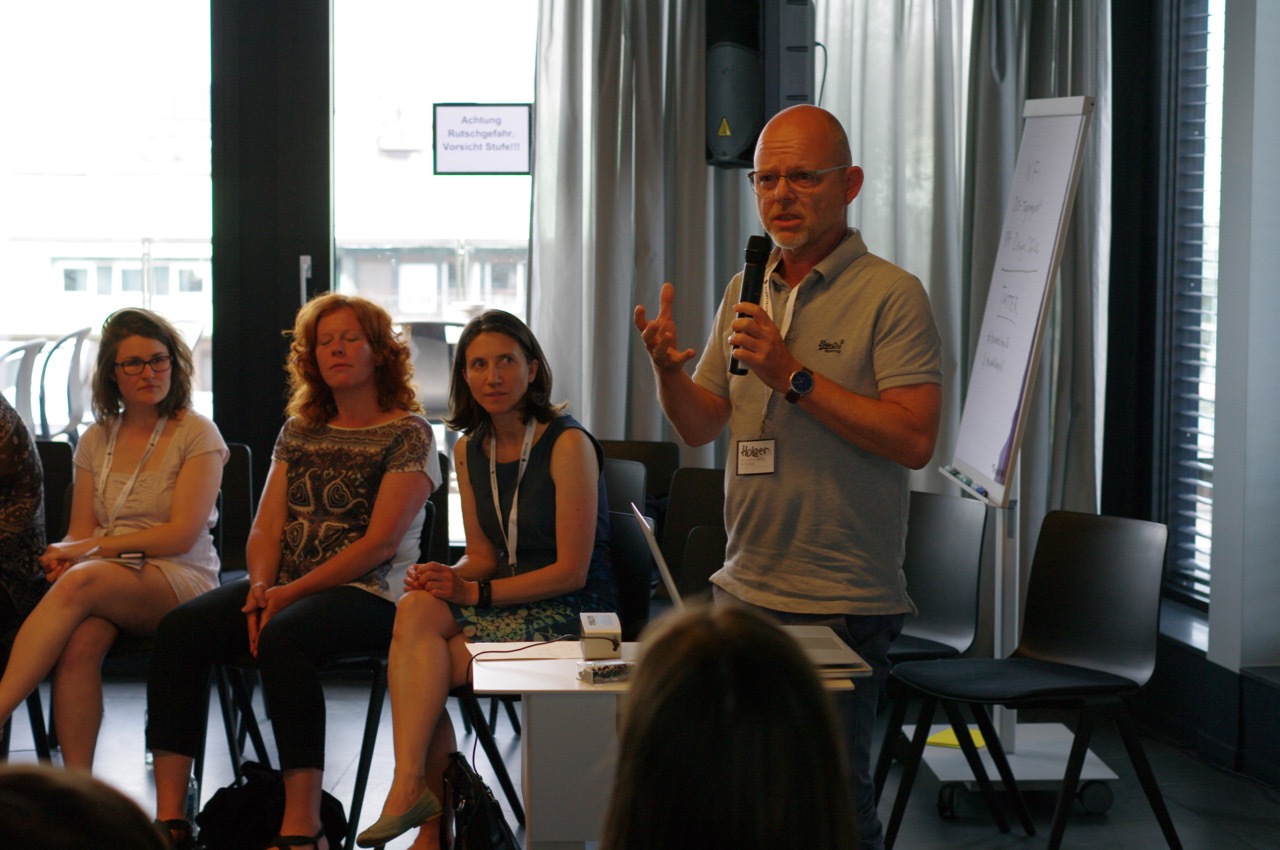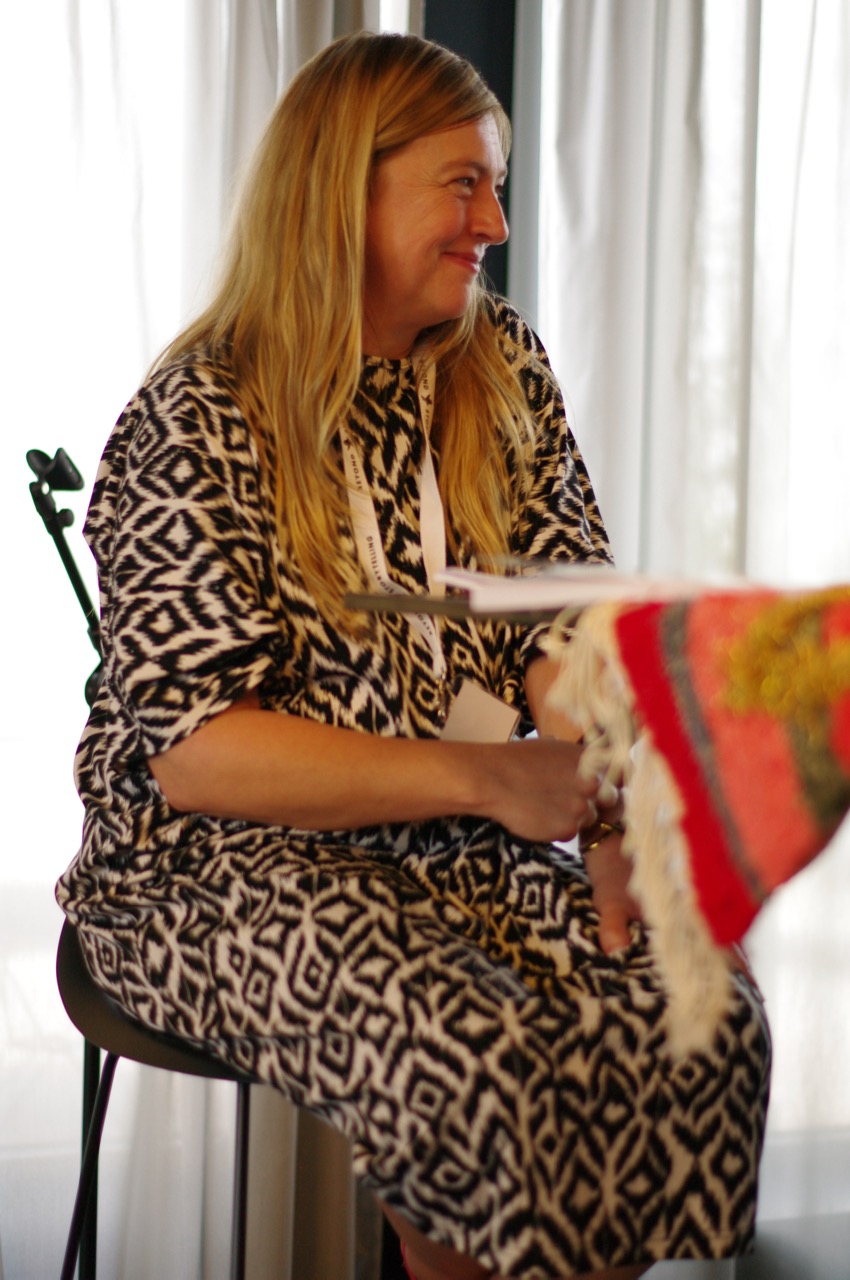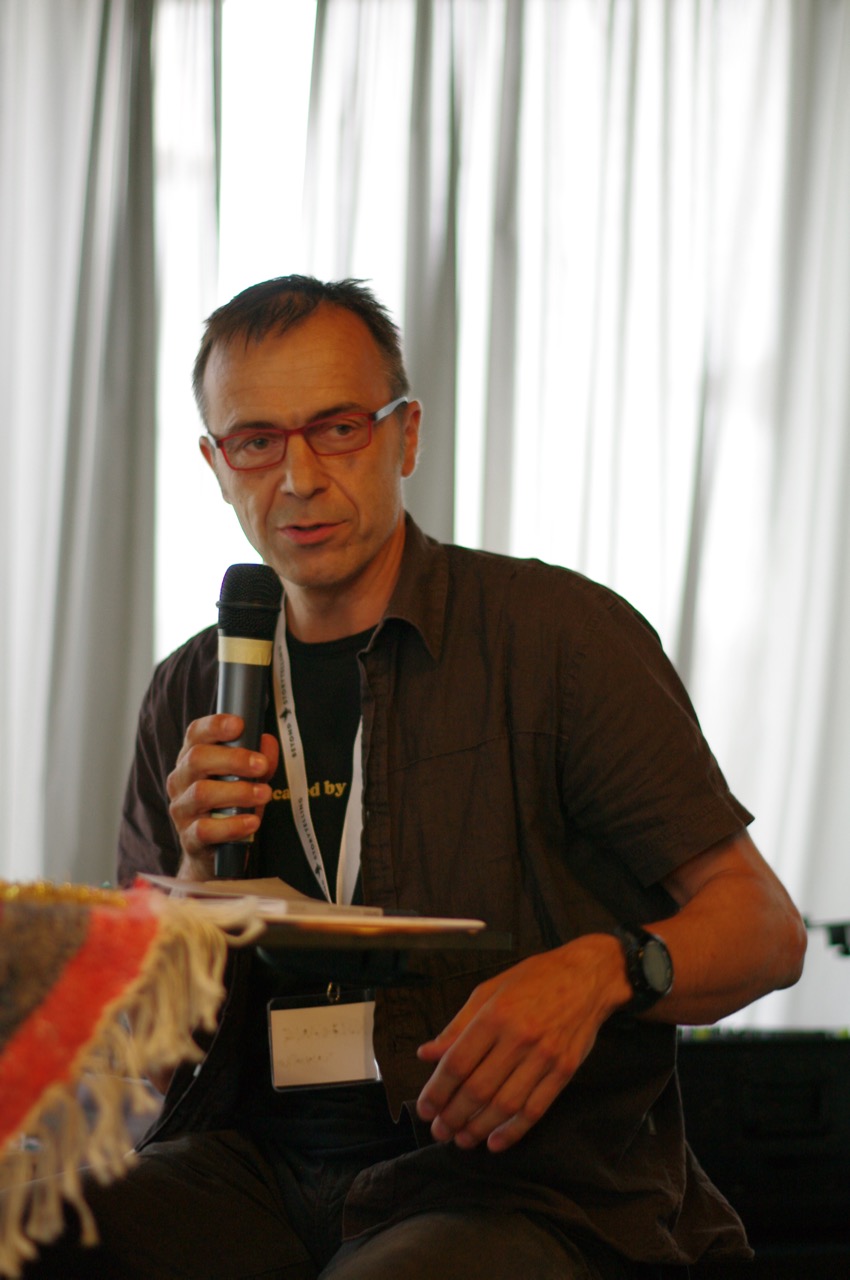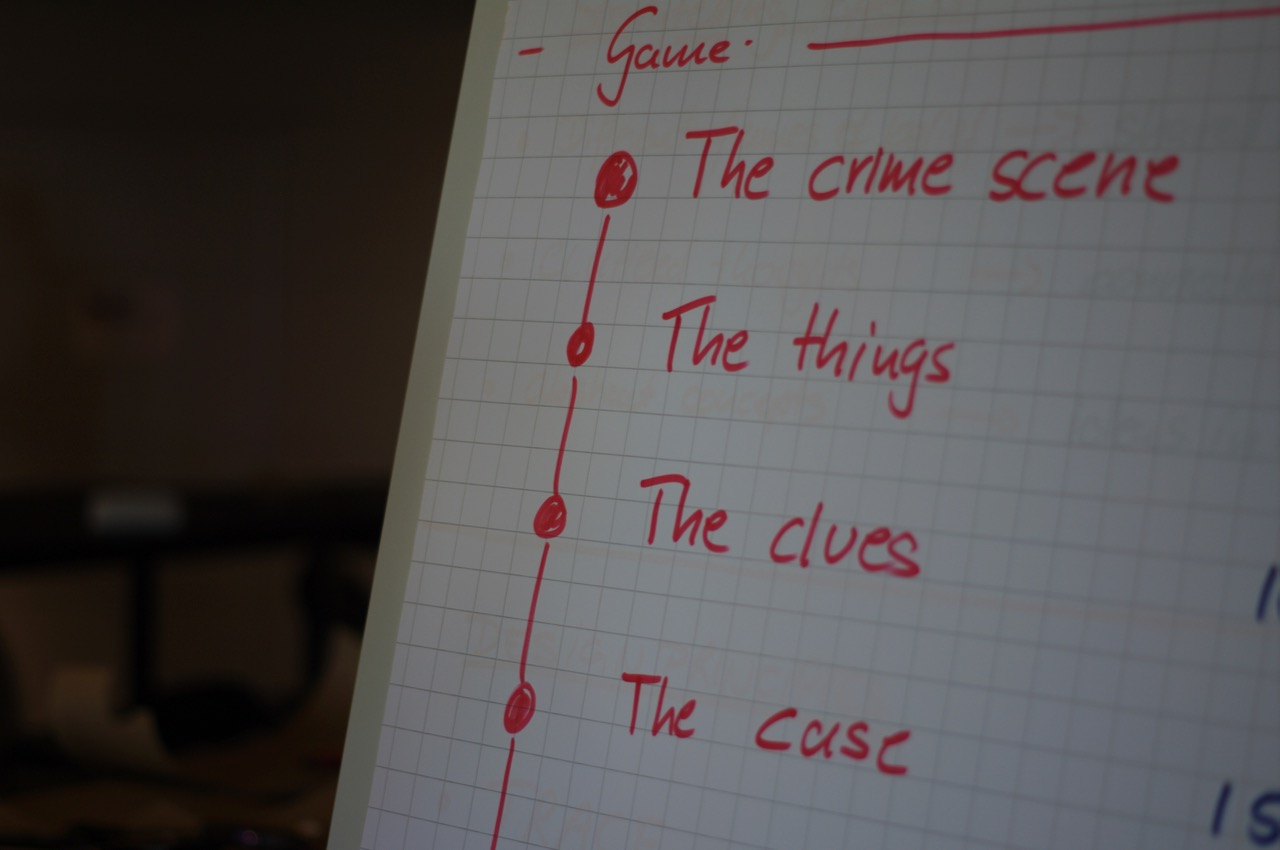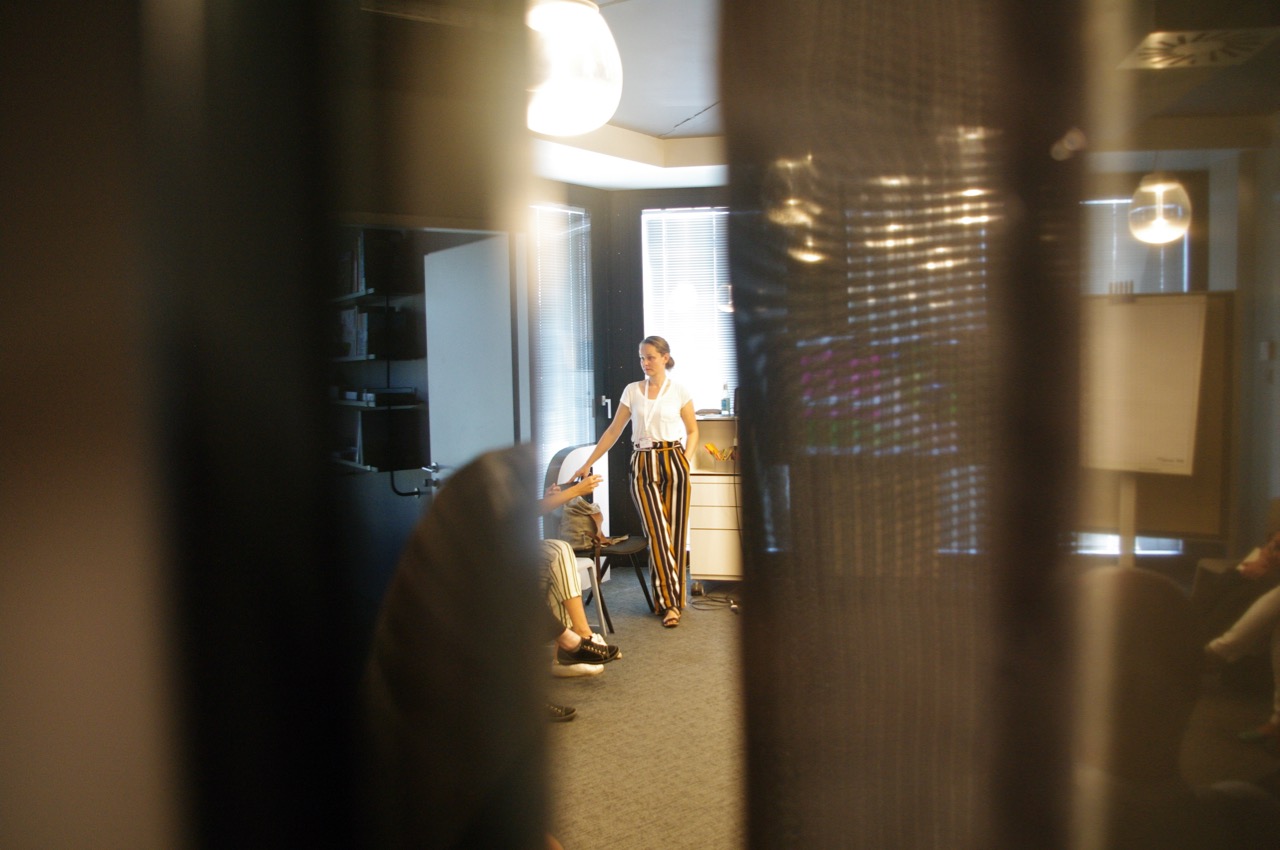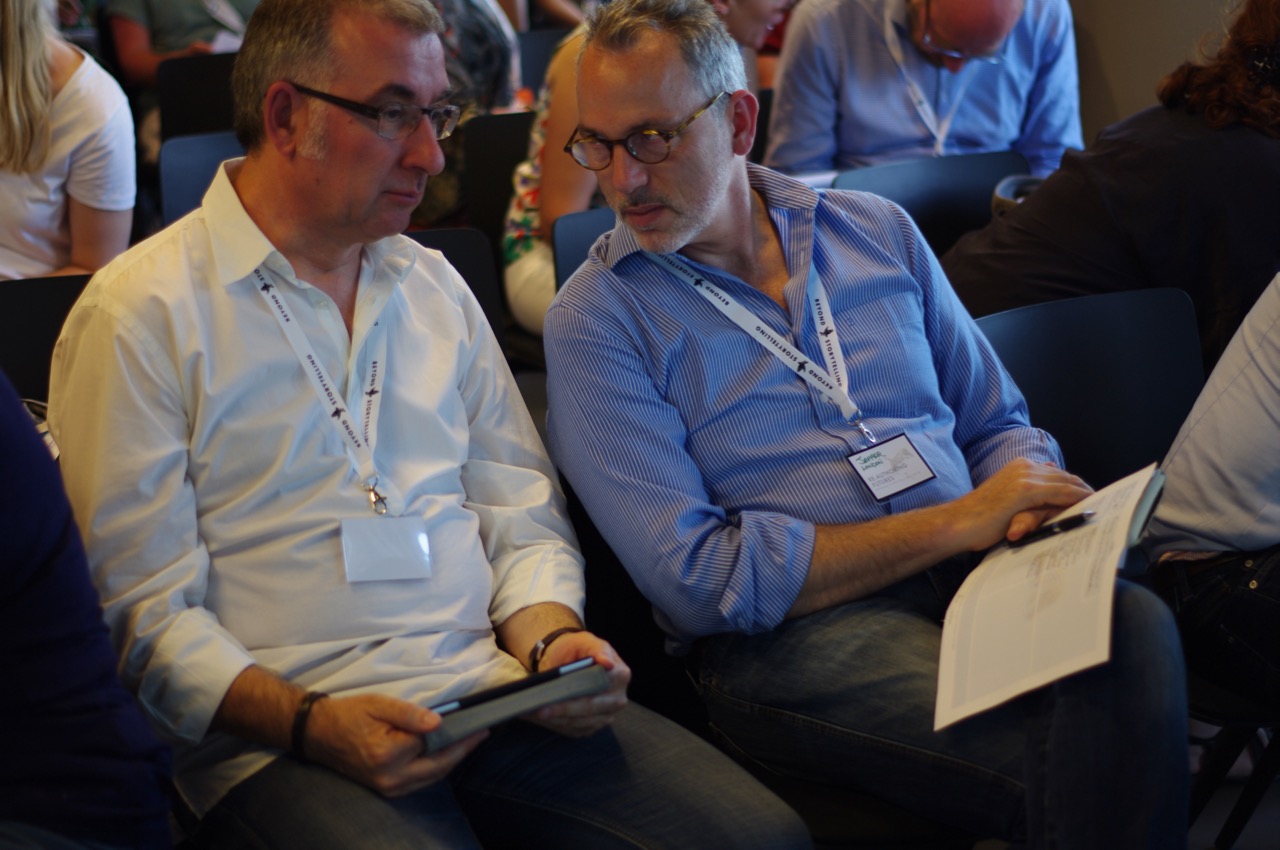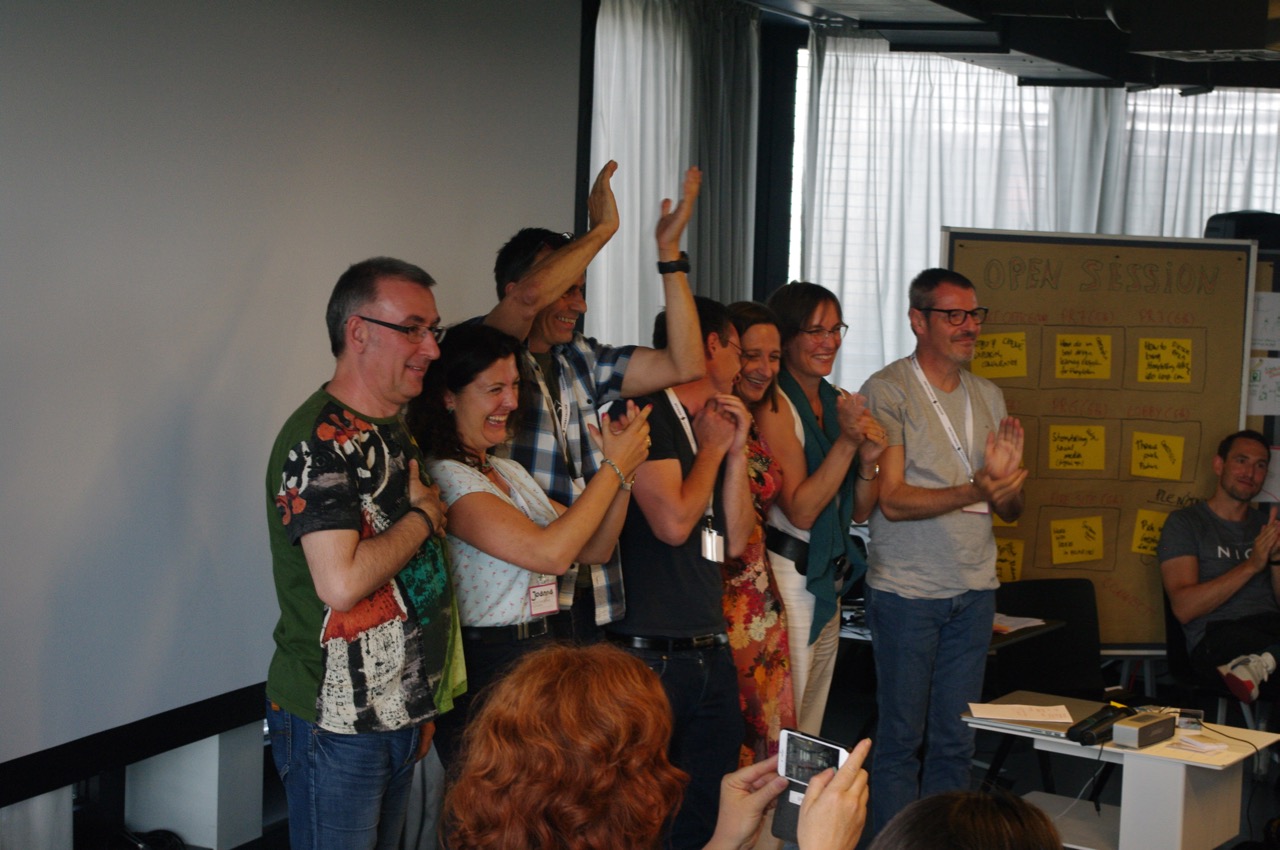In that Listen in English means much more than hearing and attentiveness, but what buddhists would call "Present Mindedness." I am not sure what you might call this kind of witnessing with full focussed attention. At StoryCenter, we say Listen Deeply.
And storytelling as we mean it also includes a component of "Thinking After" implied by the German word Nachdenken, I think, of taking what has been heard, reflecting upon it deeply, letting an the complexity of what is being said to one to sink in. It is more than understanding, it is both attention and a heart-felt appreciation for all the emotional components and potential meanings of what you have heard.
Then telling is allowing your story to be informed by the depth and thoughfulness of your reflection, and how you have heard either feedback, but as importantly, how you have held and been present to all the other stories being shared with you in a process.
Storytelling in the way we mean it is a practice, like meditation and yoga. It has endless permutations and specific spaces to connect to, it can foreground greater skill and refinement, or it foreground restoration and wholeness. It can be practiced as a daily five minutes of reflective writing, or in week long or month long retreat. It has all the flavors of all our cultural roots, our intellectual traditions, but it also connects us all. Certainly there is a word like this in some language, that encompasses process and product, conscious focus, relaxed intuition, creativity and purpose, the simple need to know and a much larger telos.
Any suggestions? In English, I like woke. An expression coming out of our African American community and the Black Lives Matter movement.
Woke is about that sort of present minded full awareness out of which come powerful stories that speak truth to the endless spin, the fake news, the polite protected power, stories that can go deep inside what needs to be said, the silences that need to end, can call on us to make ourselves alive with our own agency.
So what we mean by story in a way that has a ring of uprising to it, of resistance, in large forms as in movements for social justice, but also in the small forms of the fight for dignity in dehumanizing or simply troubling complexity.
It is not story. Not really. It is realization. It is a new insight. It is woke.
Anytime you are asked to speak first on the second day of a two day conference, 9 time zones from where you usually sleep, you know being awake is not easy.
Ponder that while I move toward the meat of my presentation today, about the idea of using story for forecasting and planning, a type of scenario storytelling.
When we look back on ourselves, ten years from now. What we will say about our choices?
This is a game many of us play, looking forward to look backward, looking forward to make sense of the present.
From techno-utopian visions to scenario storytelling
Those that know me, or read my work, know I took great power from a book my father gave me when I was young. Edward Bellamy's utopian fantasy, Looking Backward. How many of you know this book?
It is sort of a Socialist Rip Van Winkle tale of someone awake one hundred plus years in the future (written in 1888). For a fan of Jules Verne and H.G. Wells, my adolescent boy was into this early leftwing steampunk. Bellamy's book was enormously hopeful, looking at the best of what we can do, might do, in making an optimum future. And as all of us here understand, stories can and do make a difference. Hundreds of Bellamy clubs formed, nearly a million of these books sold in English and other languages afterward, and many, many people sourced their activism and commitment to social progress through the introduction to this story.
Of course these ideas were in line with the optimism of nineteenth and early 20th century socialism. Before a century of crimes, mass starvations and human rights disasters in the name of the socialist ideal. Before the wars of the twentieth century, and the ascendency of consumer capitalism as our dominant paradigm, with all its attendant positives and negatives. The idea of overcoming the tragedy of a early industrialism with the technological innovations of the end of the nineteenth century must have felt enoromously seductive.
To be frank I revisited this feeling as a techno-utopian in the late 80s and 90s. In "inventing" digital storytelling as a mechanism to engage people in digital technologies, I honestly thought we could use easy-to-use digital media production and internet distribution to unwind the negative effects of mass media on society. Can you believe it? As such I was happy to join forces with Apple, Adobe, Hewlett Packard, countless web branding and marketing firms, and a generation of rising stars in the tech, design and communications industry like Lynda Weinman of software training company, Lynda.com or Craig Newmark of Craigslist, Brenda Laurel of the girls computer game company Purple Moon, and Will Wright of Maxis/Sim City fame. These were folks in my neighborhood in San Francisco, and it was a heady time of invention and optimism like the end of the nineteenth century.
So when I was asked to give a talk at a conference called Beyond Storytelling, my first thought was to return to that era. The word Beyond suggested the vision of the step ahead. Where is all this story stuff really going?
I mentioned to Christine that for several years, 1998-2004 or so, I was a collaborator with the Institute for the Future. How many of you know this organization? They are America's longest running future forecasting organizations. Their role is to present major technological and social trends as 10 year forecasts prepared for large multinational corporations and government organizations.
